
- May 16, 2024 | Recap/Review: ‘Star Trek: Discovery’ Navigates Its Way Through In “Labyrinths”
- May 14, 2024 | IDW Celebrating 500th Star Trek Comic With Big Era-Spanning Anthology
- May 14, 2024 | Denise Crosby Returns As Captain Sela From Another Universe For ‘Star Trek Online: Unparalleled’
- May 14, 2024 | See Captain Sisko Meet A Familiar Face From ‘Picard’ In Preview Of ‘Star Trek’ #20
- May 13, 2024 | Preview ‘Star Trek: Discovery’ Episode 508 With New Images, Trailer, And Clip From “Labyrinths”

Read: Exclusive Excerpt From ‘The Jerry Goldsmith Companion’ On Scoring ‘Star Trek: The Motion Picture’
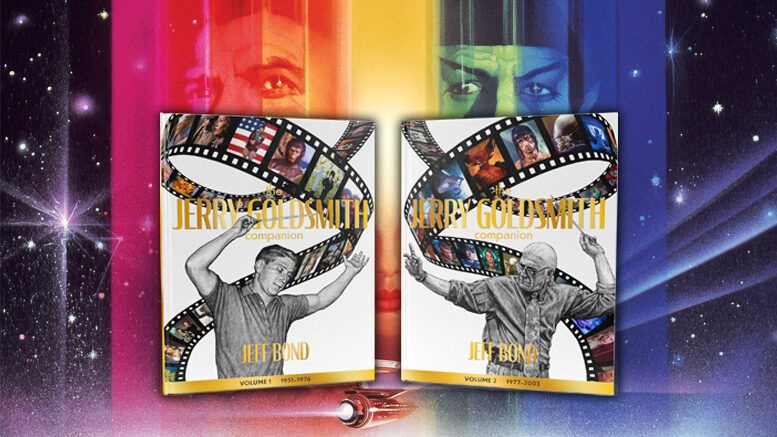
| May 23, 2023 | By: TrekMovie.com Staff 10 comments so far
A new two-volume biography is chronicling the life and work of legendary composer Jerry Goldsmith, who played a key part in defining the musical voice of Star Trek. Goldsmith composed the music on five Star Trek feature films, as well as the theme to Star Trek: The Next Generation (repurposed from Star Trek: The Motion Picture ) and Star Trek: Voyager . His decades-spanning career included nominations for 18 Academy Awards (including for Star Trek: The Motion Picture ), and he won five Emmy Awards (including one for Voyager ).
The Jerry Goldsmith Companion
Creature Features Publishing is now fundraising on Kickstarter for The Jerry Goldsmith Companion , an illustrated two-volume biography of Goldsmith. The book is written by TrekMovie contributor Jeff Bond, author of The Music of Star Trek , numerous Star Trek CD liner notes, and (with coauthor Gene Kozicki) Star Trek: The Motion Picture—Inside the Art & Visual Effects .
The following Kickstarter video offers an overview of The Jerry Goldsmith Companion:
The Kickstarter has already exceeded its goal, but is still running for three more weeks. By backing the project, you can reserve your own digital, softcover, or hardcover copy .
Exclusive excerpt on scoring Star Trek: The Motion Picture
TrekMovie is proud to present an exclusive excerpt from The Jerry Goldsmith Companion about Goldsmith’s Oscar-nominated score to Star Trek: The Motion Picture, including a couple of exclusive images featured in the book. The following excerpt is from volume 2, chapter 5, “The Human Adventure,” covering Goldsmith’s work in 1979, most of which was focused on Star Trek: The Motion Picture.
######################
Jerry Goldsmith watched all of the film’s live-action footage in May while he was at work on Paramount’s Players . “At that time, there were no special effects at all,” he told interviewer Preston Neal Jones. “I was to start the picture officially August 1. I also saw a few tests that Doug [Trumbull] had been doing, and they looked to be remarkable. They were tests for the cloud and for some of the very beginning units of Spock arriving at the Enterprise on his space shuttle, and that’s about it. There was not much more, just a few shots of the Enterprise in drydock.”
Goldsmith was already planning an elaborate score for a large orchestra that would include at least some electronics, a battery of exotic percussion, and a pipe organ. There was only one studio in Hollywood with a soundstage that had a built-in organ: 20th Century Fox. Goldsmith’s relationship with the studio and with Lionel Newman, then nearing his final years as head of music, was still good. But scoring at Fox came with the usual price of Lionel conducting Goldsmith’s music. “Lionel gave him the stage,” Goldsmith’s music editor Ken Hall, himself a fixture at Fox, said in 2000. “That was the game. He gave him the stage and Jerry said, ‘Lionel, would you like to conduct?’ Lionel was conducting for John [Williams at the time], and it was very prestigious—and there’s nothing wrong with that. But that was part of what was going on. Otherwise, why wouldn’t Jerry want to conduct his own?”
Scoring at Fox meant a forced marriage of Fox and Paramount music personnel, with Paramount’s head of music Hunter Murtaugh in the booth, on foreign ground, inside Lionel Newman’s realm, under what would soon become a pressure cooker situation. CBS Records would be putting out the soundtrack album and paying for the recording sessions—an unheard-of situation now.
Bruce Botnick, a recording engineer who had worked with everyone from The Doors to The Rolling Stones, had been assigned to oversee the recording of the score for the album. Botnick explained in 2000 that the idea of the record company paying for the score recording made abundant sense at the time. “At the time that we did this, the record business was outperforming broadcast and film, making more money than anybody. We had money to burn then. Columbia Records used to single-handedly finance musicals on Broadway. So, to them it was the same business model. It was considered pop, actually, because this Star Trek was a popular medium.”
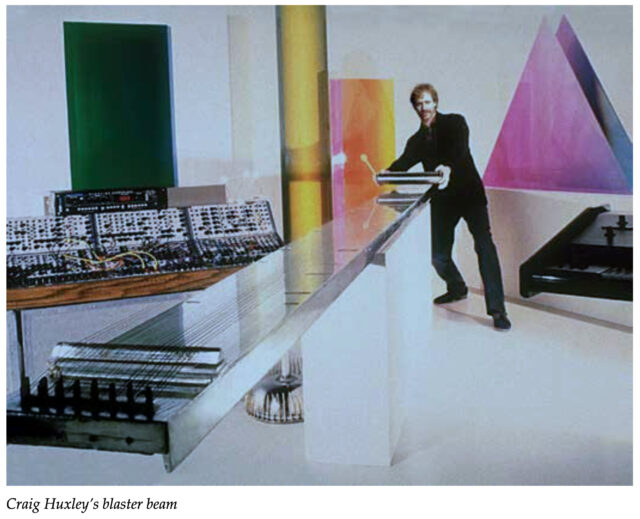
Botnick had an innovation in mind for the project—recording the score digitally, which involved using equipment on loan from Sony. CBS happily agreed, intuiting that the high-tech innovation would be a promotional selling point. “In fact, when we did put out a single, it notated the single timing as minutes seconds and frames on it and Billboard [magazine] saw that and thought that was very cool.”
The project introduced Botnick and Goldsmith for what would become a professional relationship and friendship that would last for the rest of the composer’s life. And Goldsmith’s well-established interest in synthesizers and electronic manipulation of his music made him very open to and enthusiastic about the new digital tool. “I just found him very interesting,” Botnick said in 2000, “immediately, intellectually, and, of course, musically. He was describing what he was wanting to do, and trying to figure out how I fit into the whole thing. And a few of us here were gear-sluts, and he was one as well. And so, he got very intrigued by the idea of recording digitally. He loved that—the fact that we were constantly trying new things to try and advance it. So, he got a better-sounding score on the screen.”
Goldsmith was wrapping his mind around just what the Star Trek score would be—and what it wouldn’t be. Exploring that soon led to the recruitment of a couple of venerable names from the TV series, who also happened to be longtime friends and associates of the composer’s. Star Trek came with certain well-branded associations and expectations, and one was Alexander Courage’s theme music and his fanfare for the Enterprise .
Goldsmith was already dealing with the expectations created by the script, which made specific reference to musical themes and extended musical passages. “The script itself already called for a ‘V’Ger theme,’ and others were discussed by Jerry and me,” Robert Wise told Preston Neal Jones in 1979. Goldsmith needed a theme for Ilia (Persis Khambatta), an alien female involved in a subdued romantic relationship with Stephen Collins’ Will Decker. Ilia becomes an increasingly pivotal part of the plot when she is seemingly killed by V’ger and replaced with a replica designed to interact with the Enterprise crew. The Ilia probe eventually inspires Decker to “merge” with her and V’ger to create a new life form at the end of the story.
Goldsmith began to toy with a theme for V’ger inspired somewhat by the sound of Ralph Vaughan Williams and his Sinfonia Antartica , and the approach rapidly led to a romantic theme for Ilia that worked its way into some of Goldsmith’s earliest cues. “I never really saw anything about V’Ger until the last two weeks,” Goldsmith told Jones. “It was very difficult because there was nothing really there, nothing to explain what V’Ger was about, and there was a tremendous amount of music needed for those scenes. They were guessing how long some of these shots were going to last on screen, but I just didn’t write anything for an effects shot.”
Botnick’s idea to record the score digitally almost caused its own shutdown of the process. “I think the discussion was basically that, by me bringing the equipment in, that I wouldn’t interfere with the progress of the recording, because it was totally unknown,” Botnick said in 2000. “Nobody knew anything about digital, what it could do or what it couldn’t do—so much to the point that a couple of people in the orchestra rebelled against us recording digitally. They thought we were going to replace the orchestra—that it was a synthesizer (it wasn’t; it was just a recorder). And as a consequence, about midway through the recording, I got called into Lionel’s office. And there were two very big burly guys from the union there. And they told me I had to remove my gear. I said, ‘Why?’ They said, ‘Because we’ve had complaints from the orchestra, because they’re gonna take jobs away from the mics.’ At that point, I just called up my people at CBS and told them what was going on. I just decided to remove the gear and continue recording analog two-track with TelDec telecom noise reduction units, and then transfer those over and finish the score, rather than get into a battle that wasn’t worth it.”
During the first weeks of work on the score, CBS was often paying for 100-odd players to sit around and do nothing. “I remember sitting for three days for six hours [a day],” violinist David Newman said in 2000. “But I remember that there were more sessions booked. And it might be because they can only cancel a certain amount ahead of time.” Sometimes Goldsmith would take the players through classical concert works when there was nothing to record while he waited for more special-effects footage to come in (Botnick noted that the composer was into Brahms and Mahler at the time). There was enough footage to tackle a few dialogue scenes with Ilia before Goldsmith realized that he would have to take a stab at the early, pivotal sequence of the Enterprise being viewed in its sparkling new incarnation by Kirk and chief engineer Montgomery Scott (James Doohan), and of the starship leaving its drydock and earth orbit to intercept V’ger.
Goldsmith’s approach to an earlier effects shot (one of the few available to him) of a space station “office complex” in Earth orbit, dictated the sound of the two Enterprise sequences. As he had in Alien , Goldsmith wrote music for the space station filled with swirling glissandos for strings and woodwinds, music that created almost an aquatic, nautical feeling, like the underwater music from Cabo Blanco .
Goldsmith wrote a similar but more grandiose orchestral showpiece for the drydock inspection scene. “The first two big scenes I wrote were the Enterprise in drydock and the Enterprise leaving drydock,” Goldsmith told Jones. “But that was incomplete. So I only wrote up to a certain point and then stopped. I didn’t know what was going to go on next. And that didn’t really come off too well.”
In fact, the drydock scoring was disastrous, at least from Robert Wise’s perspective—and it brought scoring to a halt. “All I remember is we had a morning session, we broke for lunch,” Bruce Botnick recalled in 2000. “And I had taken Hunter [Murtagh]’s Porsche to my office, which was just a few blocks away to take care of some stuff. When I came back, the only person here was Hunter, waiting for his car, and the sessions have been cancelled.”
Goldsmith’s early, rejected score for the Enterprise drydock cue quickly became the stuff of legend, unheard by the general public for two decades until the La-La Land Records release of the complete score in 2012. “It seemed very Debussy La Mer -ish,” David Newman recalled. “It seemed more atmospheric without a real theme.” The subdued treatment of Goldsmith’s four-note motif, with its grand, high-flown bridge, conjured up everything from wind-blown sailing ships to (in Robert Wise’s telling) to Conestoga wagons from classic Westerns. “I’m sure they talked incessantly about that—about it being a nautical metaphor,” Newman said.
“The first time Wise heard the drydock sequence, he disagreed with the approach I’d taken, and he was right,” Goldsmith told Preston Neal Jones. “The basic problem was, I didn’t write a theme, as such. I based the music on a four-note motif. I had all the time in the world to write the sequence and I got all involved from the symphonic standpoint. And it was a marvelous piece of music, it really came out terrific as a piece of concert music. But when I saw it put together with the picture, I said, ‘It’s just dying. It just doesn’t work.’”
Goldsmith took a couple of weeks to reappraise his approach. In the nooks and crannies of his original cues involving Decker and Ilia, vestiges of his avant-garde-styled string and brass writing from projects like Logan’s Run, Damnation Alley, and Alien could still be heard. An experimental sound was still very much required for the film’s V’ger sequences, but the heroic, questing feel of Star Trek —music for Kirk, for the Enterprise itself—fit in more with the romantic sweep that Goldsmith had at least wanted to bring to the bookends of Alien .
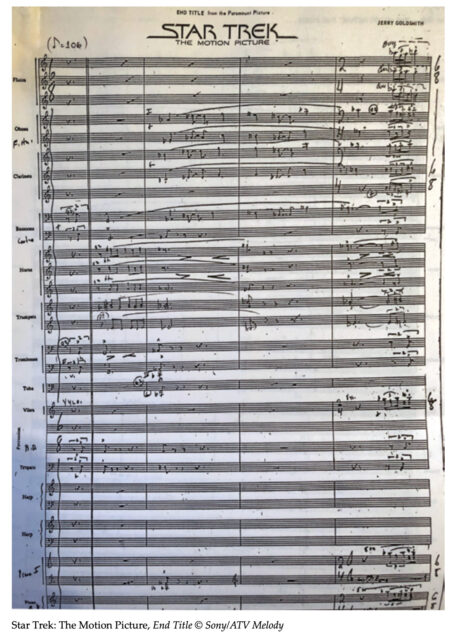
The film’s opening also required the kind of dynamic power expected of space operas in the wake of Star Wars —and Goldsmith was just coming off Players , with its rousing, rhythmically driven tennis fanfares. Somewhere along the line a structure for what would become the familiar Star Trek theme and its march presentation came into place. “It just seemed that that’s what they really wanted at Paramount,” Goldsmith said of the march. “It was sort of ‘up’ and noble. I had to go somewhere in between the original TV theme and Star Wars . I didn’t want to go [back] to the old theme; another approach that I had was a very romantic sort of soaring space theme, but it didn’t have the drive to it. So, basically I took the original that I wrote and just changed the structure of it, the meter of it—and fortunately it worked very well.”
Part of Goldsmith’s rhythmic inspiration was a pumping motif for cellos that would now open the drydock scene, establishing the busy, mission-oriented feel of Starfleet at the space station as Scotty prepares to take Kirk on a grand tour of the new Enterprise . Beginning in 6/8 time and eventually moving into 3/8 and 3/4 time, the piece takes the shape of a grand waltz by the time Kirk and Scotty’s small travel pod encircles the starship and docks with the Enterprise , with Goldsmith’s pumping motif pounded out by the entire orchestra. While the feel is quite different, the hint of a waltz ironically echoes Kubrick’s use of The Blue Danube for 2001 ’s space station docking ballet. Goldsmith retains some elements of his earlier drydock composition, but the result is a far more rousing and iconic composition. “I was still able to pull out sections of the original and put them in with this tune. So it was no picnic. But the disagreement was no big deal and the revisions worked out better for me.”
They worked out just fine for the filmmakers too. Wise was satisfied with the new approach. And speaking in a video essay on the drydock sequence in 2016, Douglas Trumbull said, “Goldsmith cut loose with the most beautiful music cue ever.”
################
Backing the jerry goldsmith companion.
The Jerry Goldsmith Companion features more about Goldsmith’s work on Star Trek: The Motion Picture as well as Star Trek V: The Final Frontier , Star Trek: First Contact , Star Trek: Insurrection , Star Trek: Nemesis , and the theme to Star Trek: Voyager . It is expected to be released in November. For more info or to reserve your own copy, visit the Kickstarter page .
You can also find out more by reading the new interview with author Jeff Bond by TrekMovie contributor Neil Shurley in his latest Star Trekking newsletter .
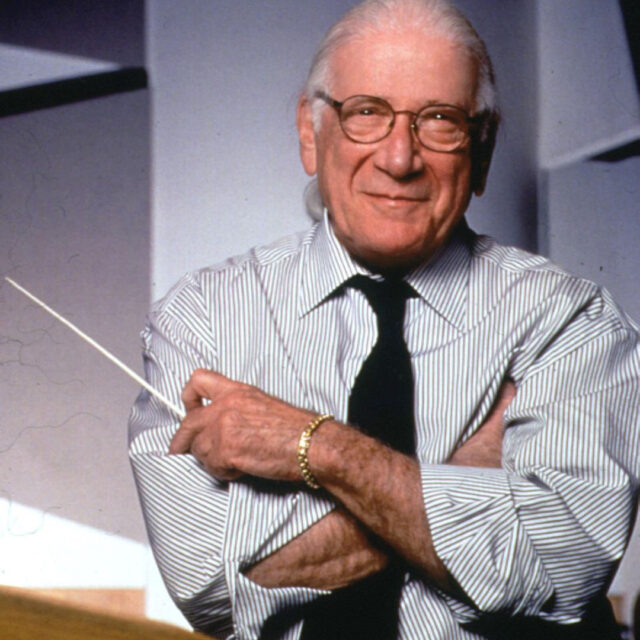
Jerry Goldsmith in 1997
Find more Star Trek merchandise news and reviews .
Related Articles
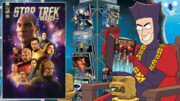
Comics , Star Trek Universe TV , Trek on TV
IDW Celebrating 500th Star Trek Comic With Big Era-Spanning Anthology
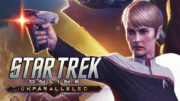
Star Trek Online , TNG
Denise Crosby Returns As Captain Sela From Another Universe For ‘Star Trek Online: Unparalleled’

Celebrity , Conventions/Events/Attractions
Star Trek Team Was Top Fundraiser For Pancreatic Cancer Action Network 2024 Charity Walk
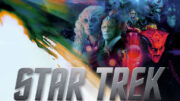
Books , Discovery
Coffee Table Book On The ‘Star Trek: Discovery’ Makeup Artistry Of Glenn Hetrick Coming In September
As a long-time Doors fan, I had no idea that Bruce Botnick was responsible for recording Goldsmith’s TMP score. Fascinating.
Very cool !!!
I’m a long-time Goldsmith fan and music dabbler and this sounds really cool.
Goldsmith’s scores are THE defining pieces of music for me, and have been my whole life, starting with PATTON and then several Charles Bronson films, especially BREAKHEART PASS (I have a feeling that when I am dying and about to check out, the end music from that film is what I’ll be playing, either on speakers or in my head.) Even most of his scores that I don’t own are often still enjoyable, despite an overreliance IMO on electronics in THE REINCARNATION OF PETER PROUD and LOGAN’S RUN.
The one score of his that I have never been entranced by is the one he got the Oscar for, THE OMEN. To me it just sounds like a lesser take on John Barry’s THE LION IN WINTER (I also get a strong Basil P. CONAN THE BARBARIAN vibe from JG’s theme to TOTAL RECALL, though that isn’t true for the rest o the score. If anybody has a desperate burning need to unload their CD copy of Basil’s IRON EAGLE score, I would be seriously interested, especially now that youtube has taken down the full score and I’m having to watch the DVD to hear the Trek-like greatness in its flying scenes.)
I’ve been listening to JG’s Derek Flint scores this week, along with EXTREME PREJUDICE, THE WIND AND THE LION, THE FINAL FRONTIER and the highjacking cue from AIR FORCE ONE. (to show I’m not monomaniacal, I also listened — repeatedly — to the SF car chase music from THE ROCK, the theme to AIRWOLF and PLAY THAT FUNKY MUSIC WHITE BOY.) Nearly every script I’ve ever written has scenes or whole sequences largely inspired by JG’s music, which is something I cannot say about John Williams, as good as some of his stuff was. EXTREME PREJUDICE has a long unused cue that inspired the whole climactic action in one script, and another unused cue (for the trailer, I think) also drove a whole teleplay.
I’m sorely tempted to buy this new book, but my history with film score related books is not a good one, since I don’t know anything about music at all except what I like (to give you an idea of just how clueless, I was 21 before somebody pointed out that I tap my feet to the melody, not the rhythm.) Goldsmith is so well represented in Preston Jones’ superb RETURN TO TOMORROW that I”m not sure if there’s anything more I ‘need’ to know about TMP’s score, plus I’m trying to back away from being a Trek completist, having managed to avoid recent books by folks who I don’t think were qualified to do TOS and TMP justice.
I’ve always loved the LR score, to the extent that I even think it should be used in the desperately-needed remake. (I once had an extended dinner conversation with William F. Nolan, who felt the same way.)
I can only hope that I’ll have the presence of mind to be playing, or have played, any music in my final moments at all. But for my funeral, it’ll be either Miles Davis’ “All Blues” or Stevie Ray Vaughan’s “Riviera Paradise,” both long (but not too long) instrumental pieces that just seem to sum up without words my feelings about the somber, yet still hopeful, experience we call life.
The three J’s of the music industry are all legends (Jerry Goldsmith, John Williams and James Horner). Also do not forget the fact that Goldsmith’s son Joel was also a successful composer and did the music for the Stargate series.
When you said “the three J’s” I thought the 3rd would be John Barry.
Make it the four J’s.
Interesting stuff. Many CD’s had really good notes in the notebook sleeves. I always enjoyed that when they came with those. And disappointed when there was next to nothing. One thing I did enjoy was I recall an interview with Goldsmith when he said he “got a lot of mileage out of that one” when asked about the TMP theme.
The moST fantastic score ever created…
- More to Explore
- Series & Movies
Published Dec 7, 2023
Looking Back at the Music of 'Star Trek: The Motion Picture'
How Jerry Goldsmith tackled the majestic score for the Enterprise's first big screen adventure, in theaters 44 years ago today.
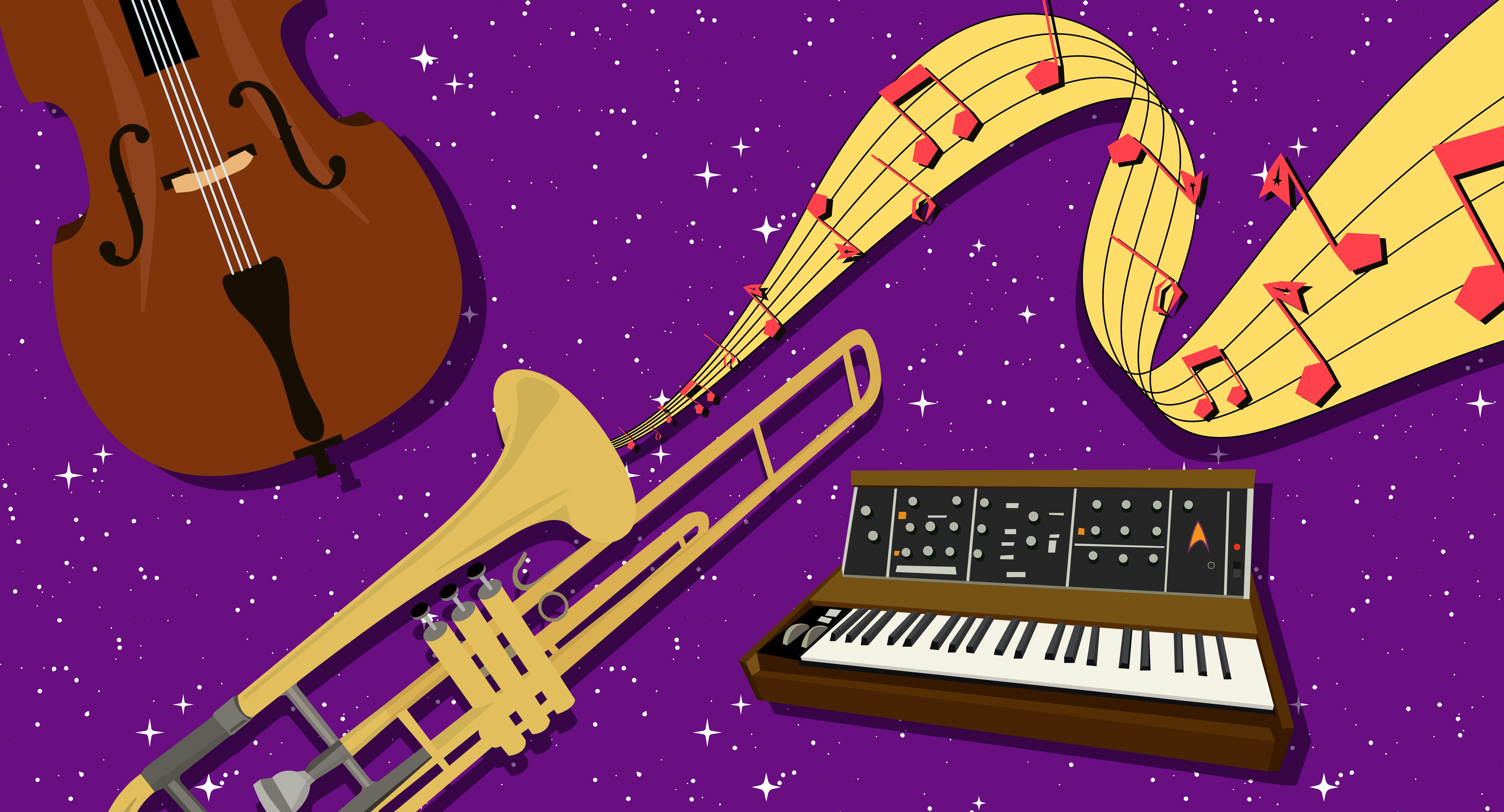
StarTrek.com / Charlotte Tegen
"I was miserable," admitted Jerry Goldsmith.
Four months from the December 7, 1979 release date of Star Trek: The Motion Picture , the composer only had a limited amount of footage and had to begin recording in a month. It was hardly an ideal situation, and it would get worse before it got better, but Goldsmith's score would go on to become an iconic part of Gene Roddenberry's creation.
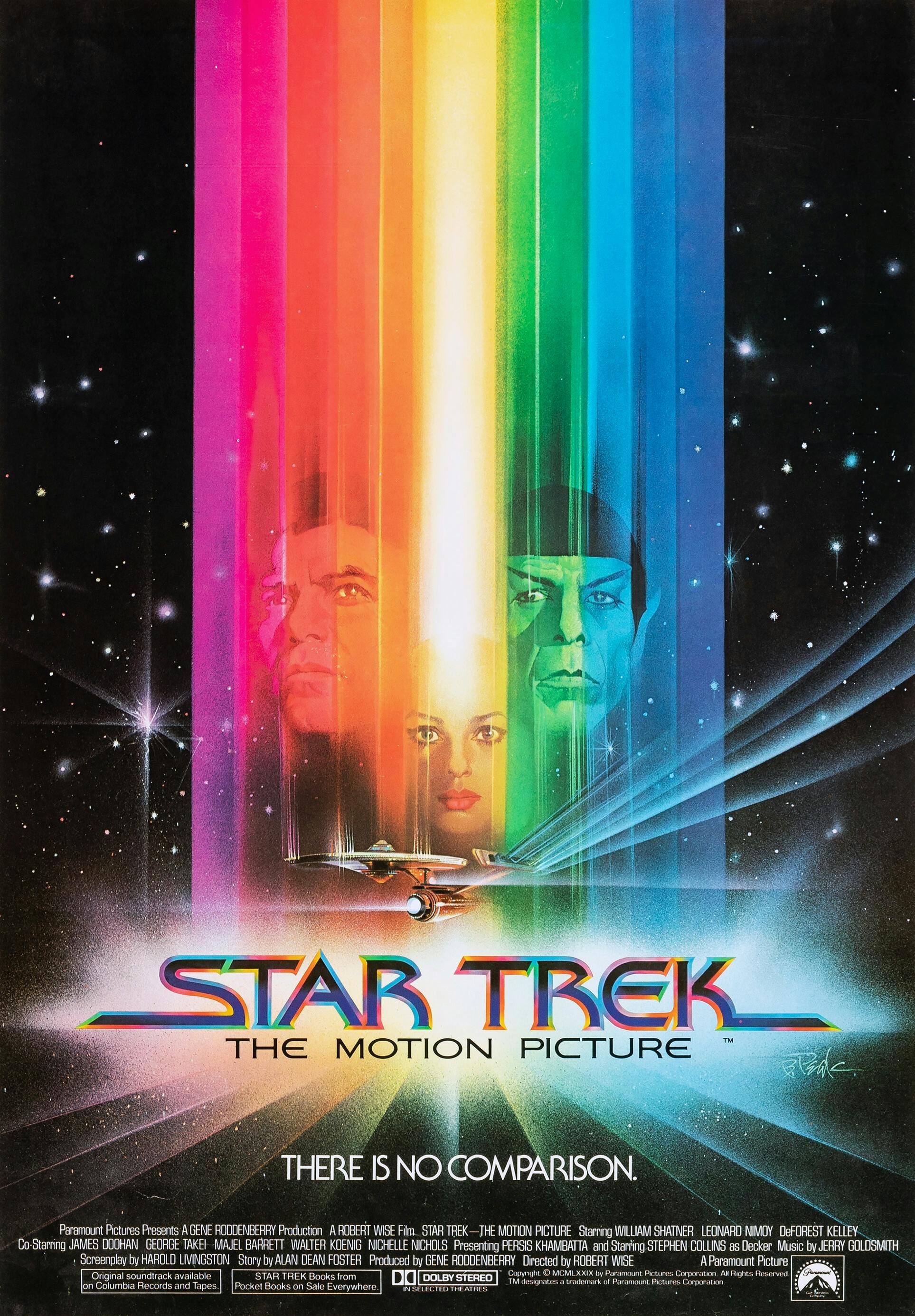
StarTrek.com
The issues during The Motion Picture ’s production were far larger than the music. Paramount had given the film a budget of $46M and locked in the release date while there were still story problems, not to mention visual effects difficulties. Subsequently, the post-production process was manic, and Goldsmith was writing music as fast as he could with what little he had. But when he put his music in front of the orchestra to record, director Robert Wise was less than thrilled.
Recalling his thoughts on the 2001 DVD release of the Director’s Edition of the film, Wise said, "It's not working. I listened to the first couple of pieces and it didn't seem quite right to me. I got visions of sailing ships somehow.."
In the same behind-the-scenes interview, Goldsmith admitted, "I was crushed." Wise went onto explain his problem with the music — there was no theme. Specifically, there was no Star Trek theme.
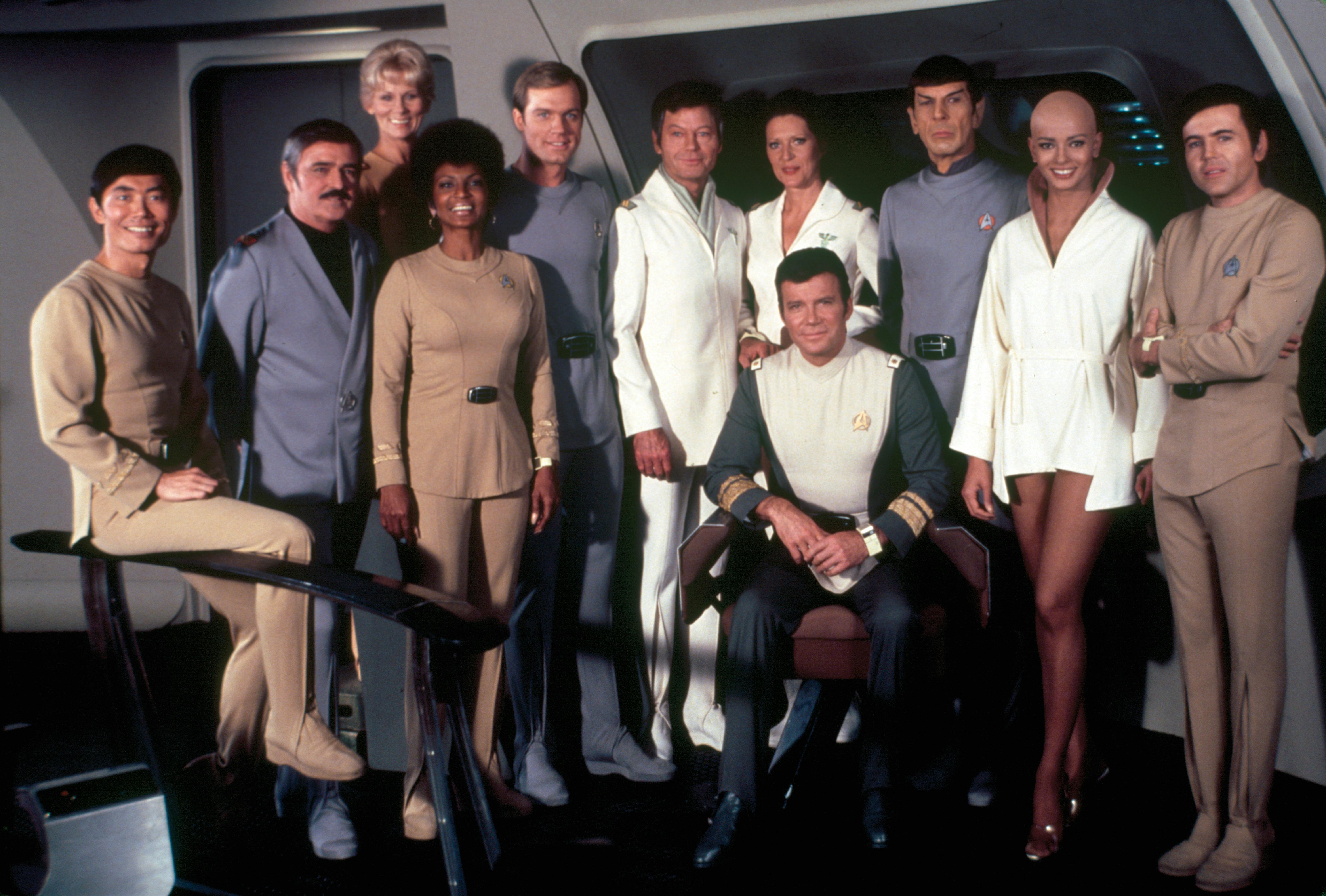
The composer struggled on, but 10 days later, he played his new creation for the director. Upon hearing the next version, Wise approved and asked, "Why didn't you come up with that in the first place?" With the themes written, Goldsmith revised the cues he had previously recorded, and the score was on its way.
Goldsmith recruited original Star Trek composer Fred Steiner to write several cues based on the material, and November of 1979 saw the belated arrival of some of the film's effects sequences. The score was finally completed on December 2, and five days later, The Motion Picture left drydock.
While reviews were mixed across the board, Goldsmith's score stood out as a towering achievement, one that not only gained him his 12th Oscar nomination (he had previously won for 1976's The Omen ), but also one that would be an integral part of Star Trek' s future legacy.
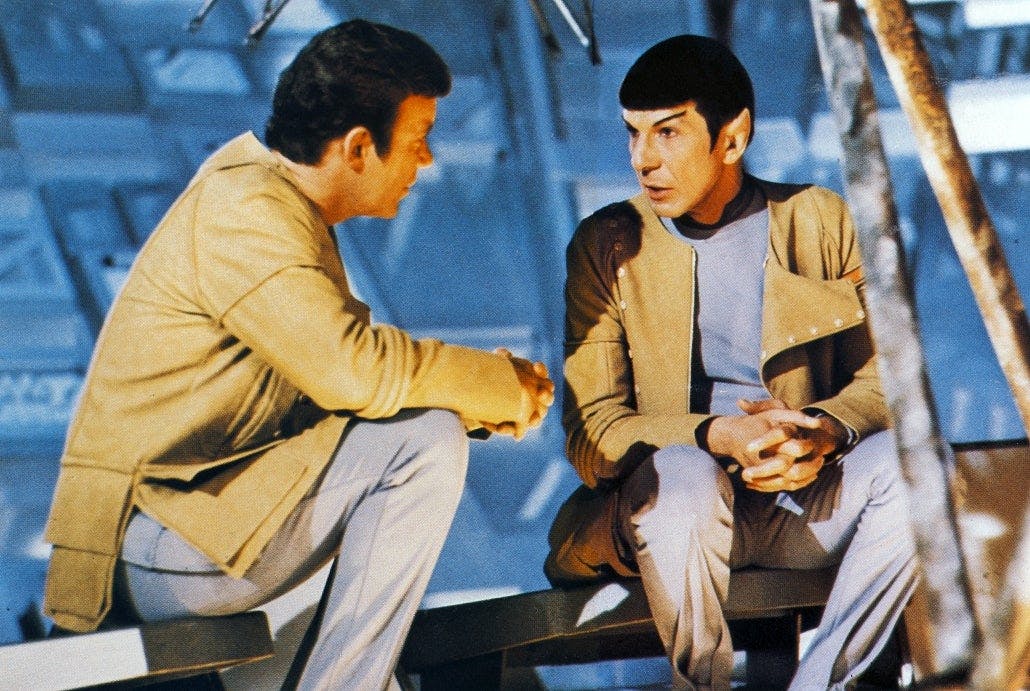
One of the challenges Goldsmith faced was to compose a symphonic score that was different from John Williams' Star Wars compositions, which hit two years prior. Instead of the leitmotif device Williams utilized, Goldsmith employed his main theme as a backbone, using it to encapsulate an approach that combined the romance and mystery of space exploration. This was a new direction for Goldsmith, venturing into a more romantic idiom of scoring.
"He was definitely a modernist," said composer David Newman in the liner notes for La-La Land’s definitive release of the soundtrack. Newman, who played the violin on The Motion Picture , added, "I think Star Trek was a turning point for him. I think he realized he couldn't be a Planet of the Apes modernist and compose [for] films."
But The Motion Picture is still very much a Jerry Goldsmith score, especially in the way it adds esoteric instruments and electronic augmentation to the traditional orchestra, harking back to previous scores such as Planet of the Apes (1968) and Alien (1979). One of the signature sounds of the film is the blaster beam, the instrument which emits the harsh electronic tones for V'Ger . This was built and performed by Craig Huxley, using "a long piece of aluminum with metal strings strung the whole way over it and amplifiers under each string," as Goldsmith described it.
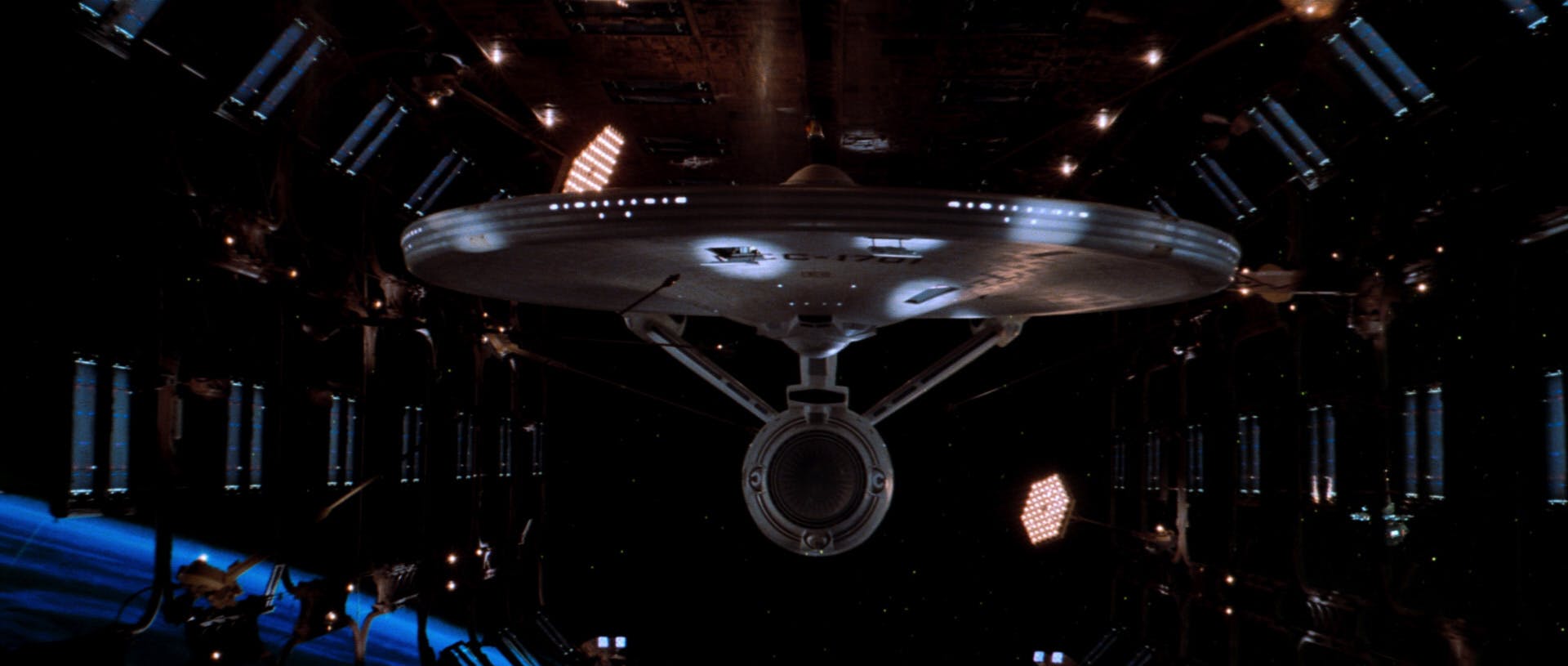
Star Trek: The Motion Picture
Goldsmith introduces his main theme in a thundering fashion, setting out his intent in the opening credits, which, in the La-La Land liner notes, film score expert Jeff Bond calls "a musical distillation of Roddenberry's utopian vision." In the same notes, Goldsmith himself echoed Roddenberry's original concept of Star Trek as a western, saying that it was no different than "the stirring music you'd play in a western as they're going across the plains... The only difference is you're going across the universe."
Goldsmith's theme conjures up a bold feeling of exploration, cutting a path through the stars with the Enterprise in its wake, while its B-theme suggests not only adventure but the connection between Admiral Kirk and the starship herself. Goldsmith expanded on this in "The Enterprise ," the show-stopping cue that scores the moment when Kirk and the audience first glimpse the brand-new refitted starship.
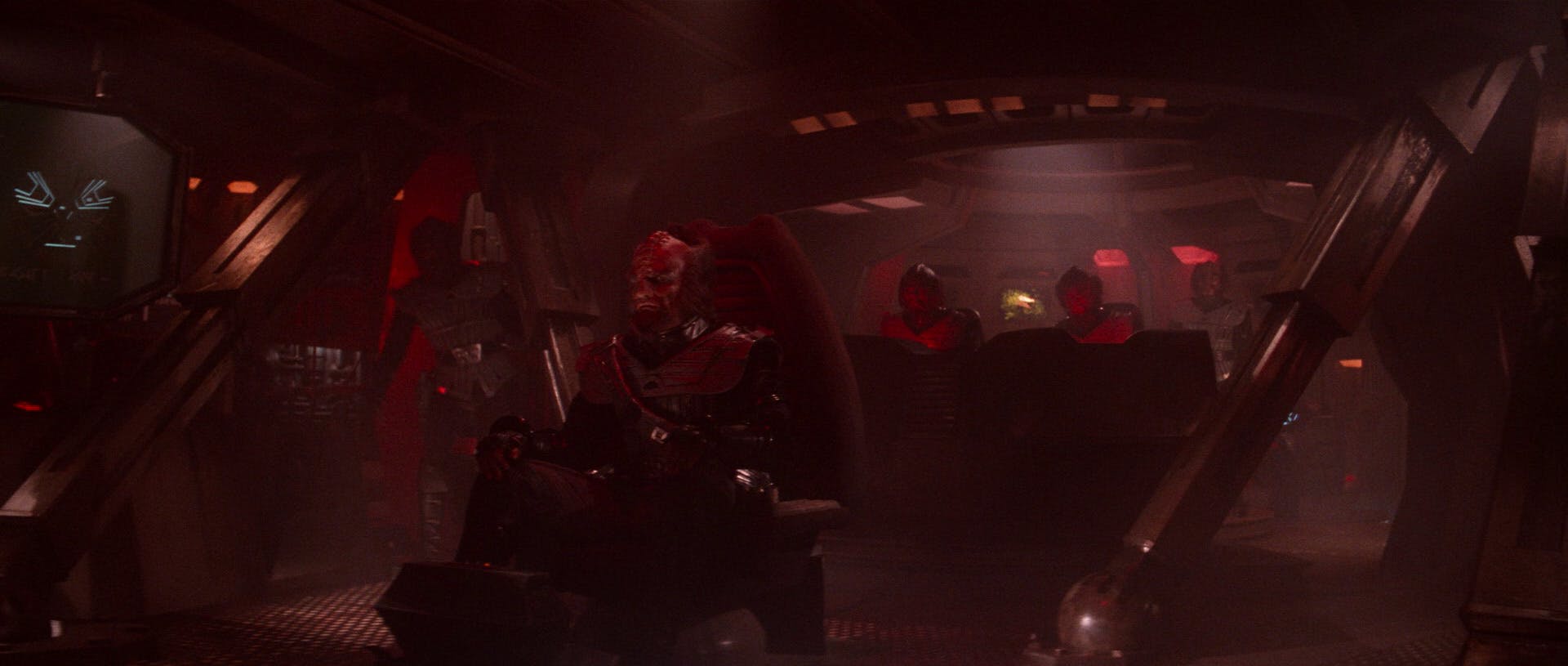
Almost as a contrast to the Federation's benign mission, the opening sequence introduced Goldsmith's theme for the legendary warrior race of Klingons. Setting a trend for other composers to follow, Goldsmith used the theme to summarize their barbaric and aggressive tendencies, with the Indonesian angklung and plucked strings leading the sharp and angled main melody. Interestingly, Goldsmith would return to this material for his score to Star Trek: First Contact , where it was turned on its head to become a heroic motif for the character of Worf.
Goldsmith's music for V'Ger explores the dynamics between the idea of a living machine — a contradiction in terms — and its quest to meet its creator, with a long-lined undulating melody conveying a mechanical feel but also suggesting that something else lies under the surface. The score also features a haunting ostinato for the Enterprise 's journey through V'Ger , and surprisingly, another motive, which is a minor-mode version of Ilia's theme, foreshadowing the union at the climax of the film.
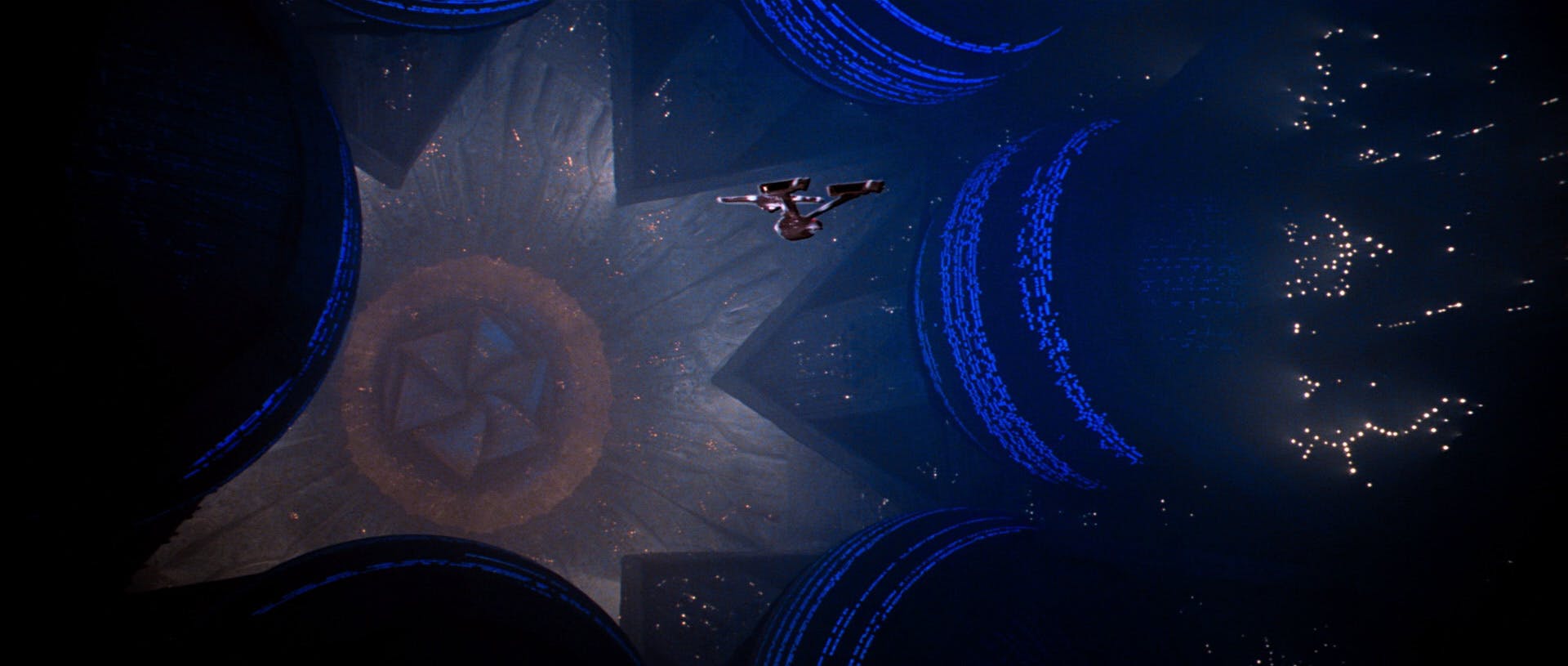
Ilia's theme, which also appears as the overture —one of the last for a theatrical film for several decades — is the main love theme of the film, a gorgeous but delicate melody representing the Deltan's previous relationship with Commander Decker. Also in tune with V'Ger is the composer's fascinating theme for Spock, a truly alien melody that captures the character's unemotional state as he unsuccessfully attempts to purge his human emotions in the Kolinahr ritual, which Goldsmith juxtaposes with the V'Ger material to indicate their destinies may be intertwined.
An interesting anomaly is the lack of music referring to The Original Series . While Star Trek as a franchise is still musically defined by Alexander Courage's famous opening fanfare, Goldsmith requested to not use any of Courage's music. Although, he later relented and allowed Courage to write an arrangement of his main theme to score two sequences where Kirk narrates the Captain's Log. The result is a pair of brief cues that present the theme in a very subdued manner, a far cry from its use in the original series but appropriate for the seriousness of the Enterprise 's mission.
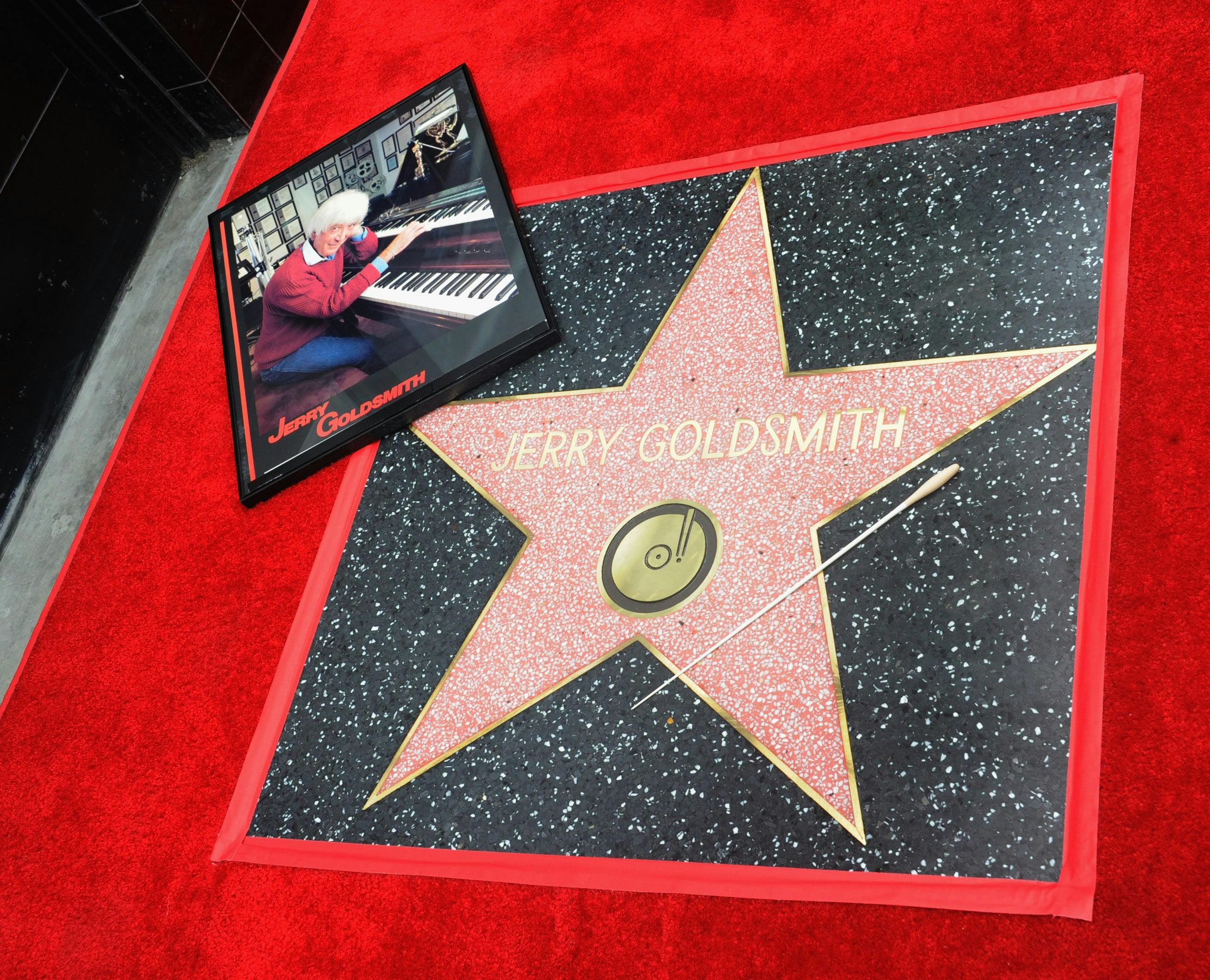
Getty Images
Jerry Goldsmith returned to the franchise in 1987 when The Next Generation debuted, with the opening credits of the show successfully combining the Courage fanfare and the Goldsmith theme (something the composer would later do himself in 1989 for Star Trek V: The Final Frontier ). He composed music for three additional movies, as well as wrote the main title theme for Star Trek: Voyager . Whether it was for film or television, where Star Trek was concerned, Goldsmith was omnipresent.
Sadly, Jerry Goldsmith passed in 2004. However, his music for Star Trek and particularly The Motion Picture continues to live on, through the wonderful La-La Land soundtrack release, as a concert staple, and in the hearts of Star Trek fans across the universe. For them, there is no comparison.
Get Updates By Email
This article was originally published on September 18, 2019.
Charlie Brigden (he/him) is a writer specialising in film music and is based in Wales in the U.K. He has a rather large tattoo of the TOS Enterprise and can be found on Twitter @moviedrone.
- Behind The Scenes
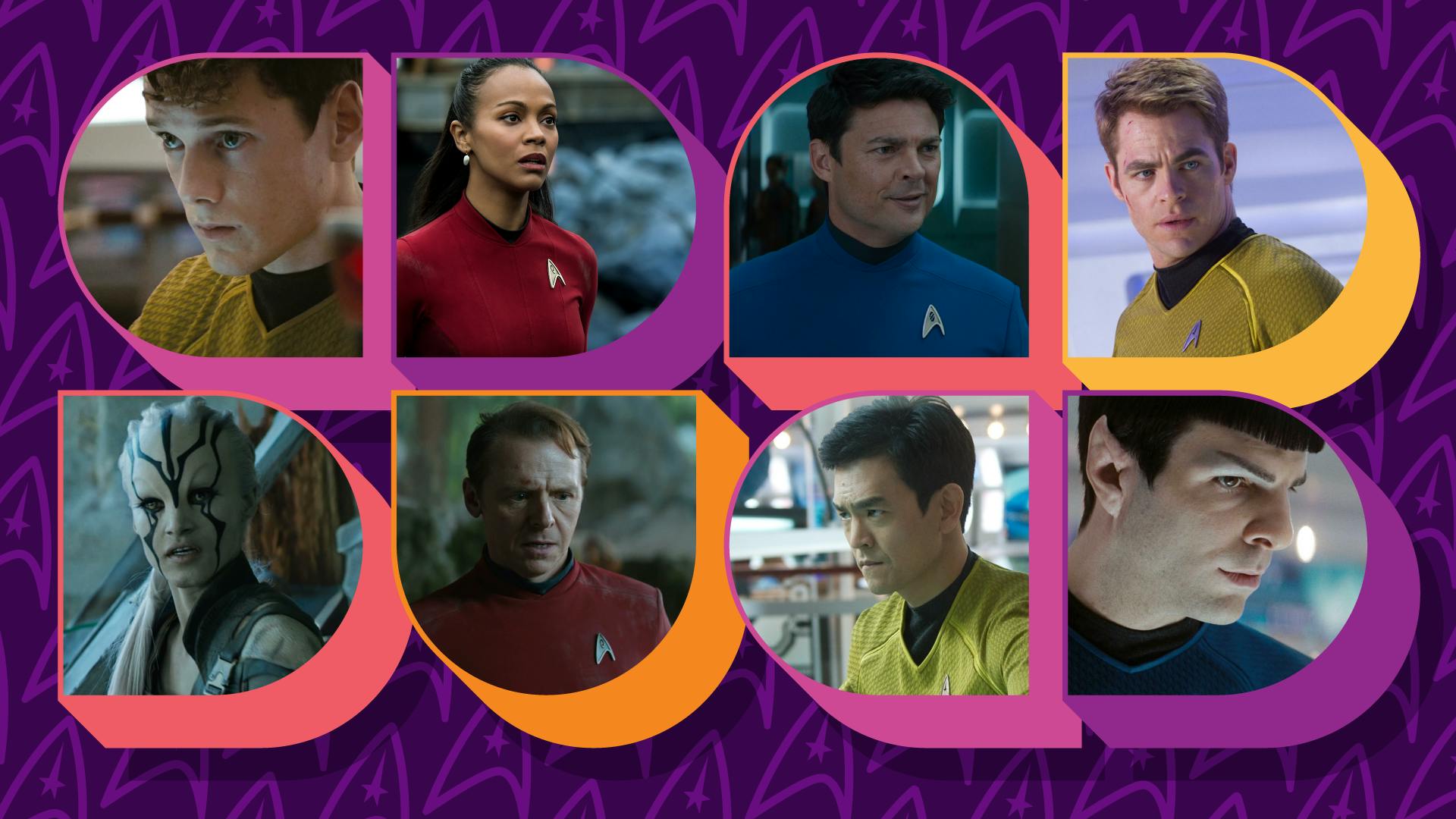
WORLDWIDE shipping
FREE UK delivery over £35
PROUDLY INDEPENDENT since 2001
Film & Television , Jerry Goldsmith's Star Trek: The Motion Picture in Full Score

Released in 1979, the film was the first of six to feature the cast of the original television series, and concerns the efforts of Kirk, Spock, McCoy, and crew to understand and neutralise the threat faced by a mysterious spacecraft that has been destroying everything in its path.
Initially referring to itself as V'Ger, the vast structure turns out to be the (fictional) Voyager 6 probe, launched from Earth and having subsequently gained consciousness through contact with an alien intelligence. To represent this inscrutable antagonist, Goldsmith employed the distinctive, unearthly sound of the blaster beam, an enormous construction consisting of metal beams up to eighteen feet in length, strung with tensed wires and mounted underneath with electric guitar pickups. The strings are then struck with a variety of objects to create the unforgettable timbre that is heard so prominently throughout the film.

For the main theme, Goldsmith wrote perhaps his best-known melody: so popular was it that in 1987 it was re-used as the theme for the television series, Star Trek: The Next Generation . In addition, he provided a lush, sweeping theme for Ilia, the Starfleet officer killed and then artificially recreated by V'Ger during the events of the film, as well as a primal motif based on perfect fifths for the rallying war-cry of the Klingons.
Omni's score presents every cue written by Goldsmith, as well as a handful of short cues adapted by Fred Steiner and quoting Alexander Courage's theme from the original series. Furthermore, as an appendix this volume includes early versions of almost a dozen cues, offering a fascinating insight into Goldsmith's working methods and also into the ways in which his music evolved during the scoring process.
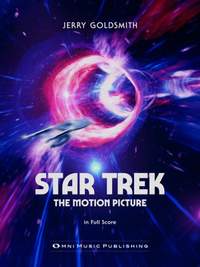
Jerry Goldsmith: Star Trek The Motion Picture
The complete orchestral score of Jerry Goldsmith's music for the 1979 film, Star Trek: The Motion Picture , including early versions of several cues.
Available Format: Sheet Music
- View full details
Other Omni Music scores currently available from Presto Music
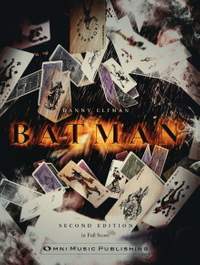
Danny Elfman: Batman
All fifty-one cues from Danny Elfman's iconic score for Tim Burton's Batman , several of which were written but never included in the final cut of the film.
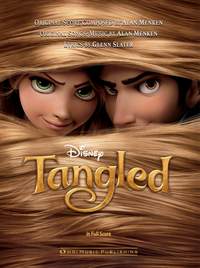
Alan Menken: Tangled
All song and score cues from Alan Menken's music (with lyrics by Glenn Slater) for the popular Disney retelling of the Rapunzel legend.
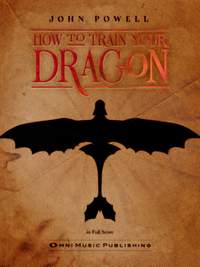
John Powell: How To Train Your Dragon
Inspired by the “Scandinavian Scotland” from Cressida Cowell’s series of books on which the film is based, John Powell drew upon his Scottish heritage to portray the Viking protagonists, using instruments such as bagpipes, dulcimers, and whistles in his delightfully imaginative score.
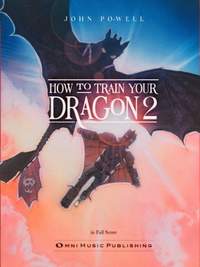
John Powell: How To Train Your Dragon 2
Powell returned for the sequel, incorporating old themes with new ones to create a flawless evolution in the musical landscape of the franchise.
James Longstaffe - Head of Retail
James is a conductor, répétiteur, arranger, and tuba player. His musical interests include opera, film music, late-Romantic orchestral works (especially Mahler and Richard Strauss), and twentieth-century American composers such as Copland, John Adams, and John Williams. He read Music at Christ Church, Oxford, writing his postgraduate dissertation on the music of Star Wars .
Download queue
- Clear completed
- The Original Series
- The Animated Series
- The Next Generation
- Deep Space Nine
- Strange New Worlds
- Lower Decks
- Star Trek Movies
- TrekCore on Twitter
- TrekCore on Facebook

If you’re looking to score a copy of this, um, score, you can head over to Omni Music Publishing’s site now where the massive release is available now for $85.00.
- jerry goldsmith
- Omni Music Publishing
- Star Trek: The Motion Picture
- Trek Merchandise
Related Stories
Hallmark’s 2024 star trek ornaments include dr. crusher, captain pike, the long-awaited enterprise-b, and more, star trek: strange new worlds “subspace rhapsody” musical soundtrack now available on vinyl, vice press debuts ‘remastered’ limited edition star trek: the motion picture one-sheet posters, search news archives, new & upcoming releases, featured stories, lost-for-decades original star trek uss enterprise model returned to roddenberry family, star trek: lower decks cancelled; strange new worlds renewed for season 4, our star trek: discovery season 5 spoiler-free review.
TrekCore.com is not endorsed, sponsored or affiliated with Paramount, CBS Studios, or the Star Trek franchise. All Star Trek images, trademarks and logos are owned by CBS Studios Inc. and/or Paramount. All original TrekCore.com content and the WeeklyTrek podcast (c) 2024 Trapezoid Media, LLC. · Terms & Conditions
Music Conducted By Jerry Goldsmith Additional Music Adaptations Fred Steiner Orchestrations By Arthur Morton, Alexander Courage and Fred Steiner Recorded By Bruce Botnick Performed By - Album Produced By Jerry Goldsmith and Bruce Botnick Re-Issue Produced By Mike Matessino and Bruce Botnick Label La-La Land Records LLCD 1207 Previous Release(s) Columbia/Legacy C2K 66134 Columbia LP/CDs Year Of CD/Film Release 2011/1979 Running Time - Availability Limited Release
Cues & Timings DISC 1 The Film Score 01. Overture 1:43 02. Main Title / Klingon Battle 7:01 03. Total Logic 3:54 04. Floating Office 1:08 05. The Enterprise 6:02 06. Malfunction 1:30 07. Goodbye Klingon / Goodbye Epsilon Nine / Pre-Launch 2:10 08. Leaving Drydock 3:32 09. TV Theme / Warp Point Eight :50 10. No Goodbyes :53 11. Spock’s Arrival 2:03 12. TV Theme / Warp Point Nine 1:49 13. Meet V’Ger 3:06 14. The Cloud 5:05 15. V’Ger Flyover 5:01 16. The Force Field 5:07 17. Micro Exam 1:13 18. Games / Spock Walk 9:51 19. System Inoperative 2:03 20. Hidden Information 3:58 21. Inner Workings 4:04 DISC 2 The Film Score (Cont'd) 01. V’Ger Speaks 4:04 02. The Meld / A Good Start 5:37 03. End Title 3:16 The Unused Early Score 04. The Enterprise (Early Version) 6:05 05. Leaving Drydock (Early Version) 2:39 06. No Goodbyes (Early Version) :55 07. Spock’s Arrival (Early Version) 2:00 08. Micro Exam (Early Version) 1:15 09. Games (Early Version) 3:49 10. Inner Workings (Early Version) 4:43 The 1979 Album 11. Main Title / Klingon Battle 6:50 12. Leaving Drydock 3:29 13. The Cloud 5:00 14. The Enterprise 5:59 15. Ilia’s Theme 3:00 16. Vejur Flyover 4:56 17. The Meld 3:15 18. Spock Walk 4:17 19. End Title 3:16 DISC 3 Alternates 01. Overture (Long Version) 2:50 02. Main Title (Alternate Take) 1:44 03. Total Logic (Alternate Take) 3:49 04. Malfunction (Early Take) 1:28 05. Goodbye Klingon (AlternateTtake) :35 06. No Goodbyes (Alternate Take) :53 07. Spock’s Arrival (Alternate Take) 2:01 08. The Force Field (Alternate Take) 5:04 09. Micro Exam (Alternate Take) 1:14 10. Games (Early Synthesizer Version) 3:48 11. Games (Alternate Take) 3:48 12. Inner Workings (Alternate Take) 4:05 13. V’Ger Speaks Aalternate Take) 4:03 14. The Meld (Film Version) 3:16 15. A Good Start (Discrete) 2:27 16. Main Title (Album Take) 1:44 Additional Music 17. Main Title (First Raw Takes) 7:21 18. The Force Field / The Cloud (Excerpts) 2:33 19. Beams and Synthesizer for V’Ger 4:04 20. Beams and Synthesizer for Ilia :59 21. Synthesizer for Main Theme 1:44 22. Main Theme From Star Trek: The Motion Picture (Bob James) 5:24 23. A Star Beyond Time (Shaun Cassidy) 2:43 24. Ilia’s Theme (Alternate) 3:33 25. Theme from Star Trek: The Motion Picture (Concert Edit) 3:25
Soundtrack Ratings Disappointing Functional Average Good Excellent Outstanding
Star Trek The Motion Picture
20th Anniversary Edition Review
Spotify is currently not available in your country.
Follow us online to find out when we launch., spotify gives you instant access to millions of songs – from old favorites to the latest hits. just hit play to stream anything you like..

Listen everywhere
Spotify works on your computer, mobile, tablet and TV.

Unlimited, ad-free music
No ads. No interruptions. Just music.

Download music & listen offline
Keep playing, even when you don't have a connection.
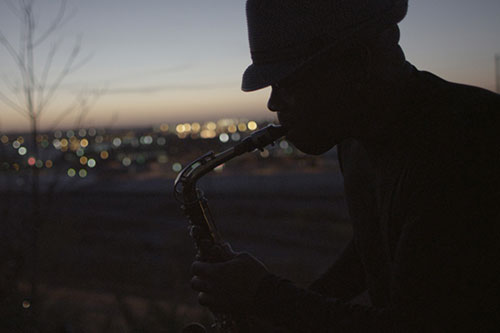
Premium sounds better
Get ready for incredible sound quality.
The cookie settings on this website are set to 'allow all cookies' to give you the very best experience. Please click Accept Cookies to continue to use the site.

STAR TREK: THE MOTION PICTURE (2-CD SET)
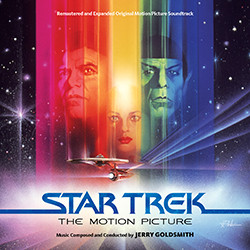
- Create New Wish List
- Description
- Warranty Information
- Track Listing
Music by Jerry Goldsmith
LIMITED EDITION OF 10000 UNITS
Jerry Goldsmith’s iconic original score to Paramount Pictures’ 1979 feature film STAR TREK: THE MOTION PICTURE boldly returns with a limited edition 2-CD re-issue from La-La Land Records and Paramount Music.
The first big screen voyage of Captain Kirk and Mr. Spock was a high budget and ambitious undertaking that introduced Goldsmith’s famous and enduring Star Trek march (later used as the main theme for Star Trek: The Next Generation ) as the cornerstone of an epic science fiction musical odyssey. Like the film’s refit starship Enterprise, La-La Land’s lavish 2012 restoration presented the score anew: fully restored, remixed and mastered from the first generation multi-track masters by Bruce Botnick, the original album co-producer and Goldsmith’s long time scoring engineer.
This new 2-CD edition is the official tie-in soundtrack to the forthcoming STAR TREK: THE MOTION PICTURE: THE DIRECTOR’S EDITION, premiering this year on the Paramount Plus streaming service. Post-Production Supervisor/Associate Producer Mike Matessino co-produces the album with Botnick, handling restoration, editing and assembly of the music.
This edition definitively presents the full film score on CD1, continuing through the start of CD2. The program now begins with the long version of the “Overture,” reflective of “The Director’s Edition,” with the short version heard in 1979 now kicking off a section of “Alternates” on CD2, which feature early versions of major score cues that were later reworked. Closing out the presentation is the enduring 1979 soundtrack album program, now re-created from the remixed first generation master material for consistent and superior sound quality throughout the set.
Matessino collaborates with Jeff Bond on the thoroughly researched album notes, which feature interview excerpts by Goldsmith, Botnick and performers Craig Huxley and David Newman. The packaging and 28-page full color booklet are designed by Jim Titus and feature new images from “The Director’s Edition.”
CLICK HERE to view the hi-res cover art.
TRACK LISTING:
CD 1 THE FILM SCORE 86:37 1 Overture 2:49 2 Main Title And Klingon Battle 7:02 3 Total Logic 3:54 4 Floating Office 1:07 5 The Enterprise 6:01 6 Malfunction 1:31 7 The Crew Briefing 2:12 8 Leaving Drydock (Film Version) 3:33 9 Captain’s Log – Warp One :49 10 No Goodbyes :54 11 Spock’s Arrival 2:04 12 Captain’s Log – Warp Seven 1:49 13 Meet V’Ger 3:04 14 The Cloud (Film Version) 5:05 15 V’Ger Flyover 5:03 16 The Force Field 5:06 17 Micro Exam 1:15 18 Games 5:35 19 Spock Walk (Film Version) 4:23 20 System Inoperative 2:03 21 Hidden Information 3:58 22 Inner Workings 4:04 23 V’Ger Speaks 4:05 TOTAL TIME CD 1 77:45 CD 2 THE FILM SCORE (CONT’D) 1 The Meld And A Good Start 5:38 2 End Credits 3:15 ADDITIONAL MUSIC 29:10 3 Overture (Short Version) 1:42 4 The Enterprise (Alternate) 6:07 5 Leaving Drydock (Alternate) 2:40 6 No Goodbyes (Alternate) :57 7 Spock’s Arrival (Alternate) 2:03 8 Micro Exam (Alternate) 1:18 9 Games (Alternate Excerpt) 3:51 10 Inner Workings (Alternate) 4:38 11 The Meld (Alternate) 3:18 12 A Good Start 2:29 ORIGINAL SOUNDTRACK ALBUM 40:36 13 Main Title / Klingon Battle 6:54 14 Leaving Drydock 3:33 15 The Cloud 4:59 16 The Enterprise 6:02 17 Ilia’s Theme 3:04 18 Vejur Flyover 4:59 19 The Meld 3:18 20 Spock Walk 4:21 21 End Title 3:20 TOTAL DISC 2 TIME 78:45 TOTAL 2-DISC TIME 2:36:30 Music Composed and Conducted by JERRY GOLDSMITH Performed by The Hollywood Studio Symphony
This release is CD Format
- Related Products
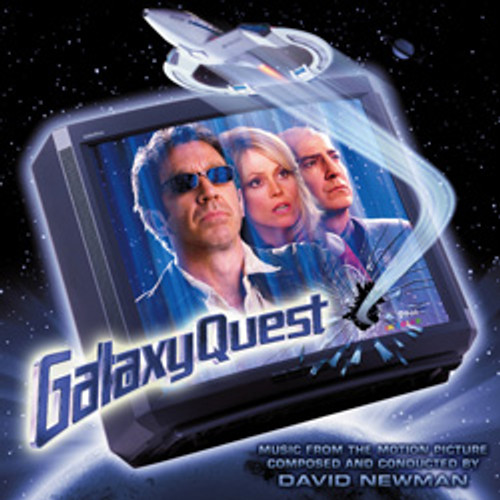
GALAXY QUEST: LIMITED EDITION

STAR TREK 50TH ANNIVERSARY COLLECTION - MUSICAL RARITIES FROM ACROSS THE STAR TREK UNIVERSE: LIMITED EDTION (4-CD SET)

STAR TREK DEEP SPACE NINE COLLECTION VOL. TWO: LIMITED EDITION (4-CD SET)
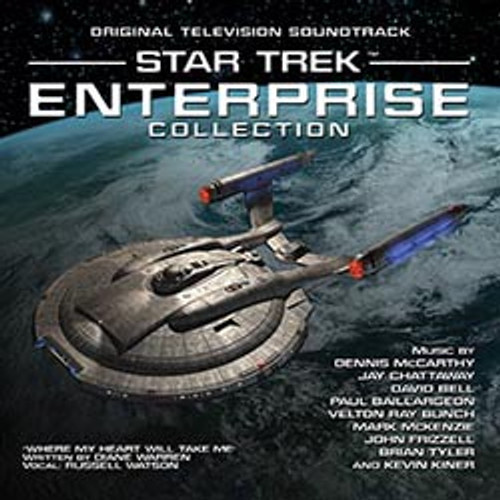
STAR TREK ENTERPRISE: COLLECTION: LIMITED EDITION (4-CD SET)

STAR TREK II – THE WRATH OF KHAN: LIMITED EDITION (2-CD SET)
Star Trek: The Motion Picture - The Director's Edition (Music from the Motion Picture)
April 5, 2022 25 Songs, 1 hour, 26 minutes ℗ 2022 Paramount Music
More By Jerry Goldsmith
Africa, middle east, and india.
- Côte d’Ivoire
- Congo, The Democratic Republic Of The
- Guinea-Bissau
- Niger (English)
- Congo, Republic of
- Saudi Arabia
- Sierra Leone
- South Africa
- Tanzania, United Republic Of
- Turkmenistan
- United Arab Emirates
Asia Pacific
- Indonesia (English)
- Lao People's Democratic Republic
- Malaysia (English)
- Micronesia, Federated States of
- New Zealand
- Papua New Guinea
- Philippines
- Solomon Islands
- Bosnia and Herzegovina
- France (Français)
- Deutschland
- Luxembourg (English)
- Moldova, Republic Of
- North Macedonia
- Portugal (Português)
- Türkiye (English)
- United Kingdom

Latin America and the Caribbean
- Antigua and Barbuda
- Argentina (Español)
- Bolivia (Español)
- Virgin Islands, British
- Cayman Islands
- Chile (Español)
- Colombia (Español)
- Costa Rica (Español)
- República Dominicana
- Ecuador (Español)
- El Salvador (Español)
- Guatemala (Español)
- Honduras (Español)
- Nicaragua (Español)
- Paraguay (Español)
- St. Kitts and Nevis
- Saint Lucia
- St. Vincent and The Grenadines
- Trinidad and Tobago
- Turks and Caicos
- Uruguay (English)
- Venezuela (Español)
The United States and Canada
- Canada (English)
- Canada (Français)
- United States
- Estados Unidos (Español México)
- الولايات المتحدة
- États-Unis (Français France)
- Estados Unidos (Português Brasil)
- 美國 (繁體中文台灣)

- No products in the cart.
Welcome to Omni Music Publishing Shop

Jerry Goldsmith “Star Trek: The Motion Picture” Full Orchestral Score
$ 85.00
473 pages. 9×12 inches. Paperbound, Printed in U.S.A.
Available worldwide. Note: Please check with your country for import/duty tax before ordering. This charge will be in addition to the book cost and shipping cost and varies by country.
Out of stock
- Description
- Additional information
- Reviews (5)
Star Trek is one of Goldsmith’s most stunning, most awe-inspiring, and thematically rich scores. Every one of the 473 pages of orchestration reveal a mind that was able to create engaging music that perfectly suits the film.
Available worldwide.
5 reviews for Jerry Goldsmith “Star Trek: The Motion Picture” Full Orchestral Score
ED BULLER (verified owner) – March 12, 2021
The Sistine chapel of SCI-FI Film scores, this has it all. A huge Orchestra , Truckloads of SYNTHS and an ALIEN instrument called “THE BLASTER BEAM”. All beautiful notated by the Elves at OMNI. A massive undertaking this includes everything that was in the film and many Outtakes and Alternatives. This was a trial for Jerry as much of the first recording was rejected and he struggled to find the Tone but in the end he delivered what many regard as his Finest work. In essence it’s a Love story and the “Ilia” theme becomes center stage whilst being supported and infused with the Darker music for the Prober V,ger. A must have score this sold out in the first few hours of going on sale….there is good reason…it’s THAT Special .
fabio (verified owner) – April 3, 2021
A Masterpiece by Jerry Goldsmith… a new masterpiece this book in fullscore with the complete movie’s OST and plus various “early versions” and analysis. Thanks Omni Publishing!
Steve Parsons (verified owner) – April 10, 2021
A score many of us never expected to see in print, this is probably one of the finest examples of film scoring at its best. Featuring a now-legendary primary theme and a perhaps even more legendary story of the struggles in getting the final result laid to tape, Jerry Goldsmith’s masterwork is a must-have for any film score composer, orchestrator, or fan of fantastic music. Omni’s usual microscopic attention to detail and editing is even more outdone here by a publication that clearly shows the love for the music and craft, and features a huge appendix of original score cues that were replaced for the film. Very few scores give this level of insight into the Hollywood filmmaking process, particularly not on this scale and with an inventive, Oscar-winning composer leading the way. With a steadily increasing library of impressive titles, Star Trek – The Motion Picture is truly Omni’s crown jewel!
Jeroen van Luiken-Bakker (verified owner) – December 17, 2022
Besides what is said hereabove, one can only hope more Star Trek scores are to follow. (Hint, hint: Star Tre VI is my favourite). Being an aspiring composer myself, this score helps me study the relation between screen and music and it gives an invaluable insight into orchestrational choices.
Jonathan S. (verified owner) – March 3, 2023
By far my absolute favorite movie score. I’ve loved this soundtrack since I was a child. This score gives a unique insight into perhaps the most innovative film and TV composer of the last fifty years.
Your email address will not be published. Required fields are marked *
Your review *
Name *
Email *
Related Products

![star trek the motion picture jerry goldsmith Star Trek: The Motion Picture [Music from the Original Soundtrack]](https://fastly-s3.allmusic.com/release-covers/400/0000/282/0000282242.jpg)
Star Trek: The Motion Picture [Music from the Original Soundtrack]
Jerry goldsmith.
STREAM OR BUY:
Release Date
Recording date, recording location, discography timeline, allmusic review, user reviews, track listing, similar albums, moods and themes.

- CDs & Vinyl
- Soundtracks
Image Unavailable

- Sorry, this item is not available in
- Image not available
- To view this video download Flash Player

Star Trek: The Motion Picture Original Soundtrack Remastered & Expanded
Extended play, import, remastered.
- Audio CD $69.99 2 New from $69.99
- Vinyl $139.00 4 Used from $19.99 1 New from $139.00 3 Collectible from $35.00
Frequently bought together

Similar items that may deliver to you quickly

Track Listings
Editorial reviews.
Jerry Goldsmith's iconic original score to Paramount Pictures' 1979 feature film STAR TREK: THE MOTION PICTURE boldly returns with a limited edition 2-CD re-issue from La-La Land Records and Paramount Music. The first big screen voyage of Captain Kirk and Mr. Spock was a high budget and ambitious undertaking that introduced Goldsmith's famous and enduring Star Trek march (later used as the main theme for Star Trek: The Next Generation) as the cornerstone of an epic science fiction musical odyssey. Like the film's refit starship Enterprise, La-La Land's lavish 2012 restoration presented the score anew: fully restored, remixed and mastered from the first generation multi-track masters by Bruce Botnick, the original album co-producer and Goldsmith's long time scoring engineer. This new 2-CD edition is the official tie-in soundtrack to the forthcoming STAR TREK: THE MOTION PICTURE: THE DIRECTOR'S EDITION, premiering this year on the Paramount Plus streaming service. Post-Production Supervisor/Associate Producer Mike Matessino co-produces the album with Botnick, handling restoration, editing and assembly of the music. This edition definitively presents the full film score on CD1, continuing through the start of CD2. The program now begins with the long version of the "Overture," reflective of "The Director's Edition," with the short version heard in 1979 now kicking off a section of "Alternates" on CD2, which feature early versions of major score cues that were later reworked. Closing out the presentation is the enduring 1979 soundtrack album program, now re-created from the remixed first generation master material for consistent and superior sound quality throughout the set. Matessino collaborates with Jeff Bond on the thoroughly researched album notes, which feature interview excerpts by Goldsmith, Botnick and performers Craig Huxley and David Newman. The packaging and 28-page full color booklet are designed by Jim Titus and feature new images from "The Director's Edition."
Product details
- Package Dimensions : 5.51 x 4.96 x 0.31 inches; 4.2 ounces
- Manufacturer : La-La Land
- Original Release Date : 2022
- Date First Available : March 3, 2022
- Label : La-La Land
- ASIN : B09TTN9T55
- Number of discs : 2
- #3,891 in Soundtracks (CDs & Vinyl)
Customer reviews
Customer Reviews, including Product Star Ratings help customers to learn more about the product and decide whether it is the right product for them.
To calculate the overall star rating and percentage breakdown by star, we don’t use a simple average. Instead, our system considers things like how recent a review is and if the reviewer bought the item on Amazon. It also analyzed reviews to verify trustworthiness.
Reviews with images

- Sort reviews by Top reviews Most recent Top reviews
Top reviews from the United States
There was a problem filtering reviews right now. please try again later..
Top reviews from other countries

- Amazon Newsletter
- About Amazon
- Accessibility
- Sustainability
- Press Center
- Investor Relations
- Amazon Devices
- Amazon Science
- Sell on Amazon
- Sell apps on Amazon
- Supply to Amazon
- Protect & Build Your Brand
- Become an Affiliate
- Become a Delivery Driver
- Start a Package Delivery Business
- Advertise Your Products
- Self-Publish with Us
- Become an Amazon Hub Partner
- › See More Ways to Make Money
- Amazon Visa
- Amazon Store Card
- Amazon Secured Card
- Amazon Business Card
- Shop with Points
- Credit Card Marketplace
- Reload Your Balance
- Amazon Currency Converter
- Your Account
- Your Orders
- Shipping Rates & Policies
- Amazon Prime
- Returns & Replacements
- Manage Your Content and Devices
- Recalls and Product Safety Alerts
- Conditions of Use
- Privacy Notice
- Consumer Health Data Privacy Disclosure
- Your Ads Privacy Choices

- New Releases
- Paramount Classics

- Listen/Download from Apple Music Listen/Download from Amazon Listen/Download from Qobuz (16-bit 44kHz) Listen/Download from YouTube Music Listen/Download from Tidal
- Get the CD from La-La Land Records
Star Trek: The Motion Picture – The Director’s Edition (Music from the Motion Picture)
Music composed and conducted by jerry goldsmith.
- Overture 2:49
- Main Title And Klingon Battle 7:02
- Total Logic 3:54
- Floating Office 1:07
- The Enterprise 6:01
- Malfunction 1:31
- The Crew Briefing 2:12
- Leaving Drydock (Film Version) 3:33
- Captain’s Log – Warp One :49
- No Goodbyes :54
- Spock’s Arrival 2:04
- Captain’s Log – Warp Seven 1:49
- Meet V’Ger 3:04
- The Cloud (Film Version) 5:05
- V’Ger Flyover 5:03
- The Force Field 5:06
- Micro Exam 1:15
- Spock Walk (Film Version) 4:22
- System Inoperative 2:03
- Hidden Information 3:58
- Inner Workings 4:04
- V’Ger Speaks 4:05
- The Meld And A Good Start 5:38
- End Credits 3:15
Total Album Time: 86:37
- Album Credits
Score and Original Soundtrack Album Produced by Jerry Goldsmith Score and Original Soundtrack Album Executive Producer Bruce Botnick
Music Composed and Conducted by Jerry Goldsmith Orchestrations: Arthur Morton Orchestra Contractor: Carl Fortina Music Performed by The Hollywood Studio Symphony Recording Engineer: John Neal Assisted by Terry Brown, Randy Saunders and Barry Walters Recorded on October 23, 25, November 1, 2, 8, 14, 15, 21, 25, 26, 27 and 29, 1979, at Twentieth Century Fox Music Scoring Stage, Century City, California Music Editor for the Film: Ken Hall
1979 Credits
Digital Editing Engineer: Bruce Botnick Sony Digital Recording System Consultants: Rick Plushner and Roger Pryor For 20th Century Fox Music Department: Lionel Newman For Paramount Pictures Music Department: Hunter Murtaugh For Columbia Records: Michael Dilbeck, Bruce Lundvall, Joe Dash and Guy Spellman
The Director’s Edition
Album Produced by Mike Matessino and Bruce Botnick Executive in Charge of Music for Paramount Pictures: Randy Spendlove Soundtrack Album Coordinator for Paramount Pictures: Michael Murphy Executive Producer for Robert Wise Productions: David C. Fein 2″ Multi-Track Hi-Resolution Transfers by Precision Audiosonics, Hollywood, CA Music Restoration, Editing and Track Assembly by Mike Matessino Music Mixed and Mastered by Bruce Botnick at Uniteye Productions, Ojai, CA
Jerry Goldsmith compositions published by Sony/ATV Melody (BMI).
Tracks 9 & 12 include: “Theme From Star Trek (TV Series)” by Alexander Courage and Gene Roddenberry, published by Bruin Music Company (BMI).
Conductor Jerry Goldsmith
Orchestra Manager Carl Fortina
Violins Paul Shure Bonnie Douglas Judith Aller-Talvi Thelma Beach Arnold Belnick Diane Brodick Norman Carr Arkady Delman Glenn Dicterow Ronald Folsom Frank Foster David Frisina Harris Goldman Joseph Goodman Debbie Sue Grossman Reginald Hill William Hybel William Hymanson Davida Lou Johnson Anatol Kaminsky Ezra Kliger Bernard Kundell Robert Lezin Kathleen Lenski Norma Leonard Marvin Limonick Mary Debra Lundquist Yoko Matsuda Irma Neumann David L. Newman Stanley Plummer Jerome Reisler Nathan Ross John Sambucco Sheldon Sanov Erica Sharp Daniel Shindaryov Arkady Shindelman Haim Shtrum Ross Shub Jennifer Small Marshall Sosson Spiro Stamos Joseph Stepansky Lya Stern Robert Sushel Vicki Sylvester Ilkka Talvi Mari Tsumura-Botnick David Turner Dorothy M. Wade Miwako Watanabe Jerome Webster Harold Wolf
Violas Pamela Goldsmith Marilyn H. Baker Meyer Bello Denyse N. Buffum James G. Dunham Allan Harshman Harry Hyams Roland Kato Louis Kievman Renita Koven Janet Lakatos Archie Levin Margot MacLaine Francie Martin Pat Mathews Carol Mukogawa Mike Novak Robert Ostrowski Sven Reher Harry Rumpler David Schwartz Leeana Sherman Ross Shub Barbara A. Simons Linn Subotnick Milton Thomas Barbara Thomason
Cellos Eleanor Slatkin Robert Adcock Barbara Badgley Ronald Cooper Douglas L. Davis Ernest Ehrhardt Christine Ermacoff Marie Fera Todd Hemmenway Paula Hochhalter Igor Horoshevsky Selene Hurford Raymond J. Kelley Mary C. Lane Carolisa Lindberg Jacqueline Lustgarten Robert L. Martin Nils Oliver Dana L. Rees Harry L. Shlutz David M. Speltz Gloria Strassner
Basses Milton Kestenbaum Arni Egilsson Jim D. Hackmann John Hornschuch Peter A. Mercurio Milton E. Nadel Meyer Rubin David Young
Flutes Louise DiTullio Lisa Edelstein Susan Fries Geraldine Rotella David Shostac Sheridon Stokes
Oboes Arnold E. Koblentz Norman Benno William Criss Gary Herbig Kathleen Robinson Robert Steen
Clarinets Dominick Fera Gary Gray James Kanter John Neufeld Hugo Raimondi
Bassoons Norman H. Herzberg Don Christlieb Fowler Friedlander Jack Marsh David W. Riddles Robert Tricarico
Saxophones Clifford E. “Bud” Shank William Perkins
French Horns Vincent N. DeRosa James Atkinson David A. Duke George W. Hyde Richard Gus Klein Arthur N. Maebe Brian D. A. O’Connor Richard Perissi George F. Price Alan Robinson Gale Robinson Henry Sigismonti James W. Thatcher
Trumpets Malcolm McNab Boyde Hood Chase Craig Jay J. Daversa Nelson E. Hatt Walter Johnson Glenn Lutz Anthony Plog Roy Poper David Searfoss Anthony Terran Allen Vizzutti Graham Young
Trombones Richard T. Nash Charles Loper William Booth Dominick Gravine Barrett O’Hara Lloyd E. Ulyate
Bass Trombones George M. Roberts Phillip A. Teele Donald G. Waldrop Vincent J. Fanuele
Tubas John T. Johnson James M. Self Stephen T. Klein Ed Welter
Piano Ralph E. Grierson Michael A. Lang Eric Lindemann Ian Fraser John Berkman
Synthesizer Craig Huxley (Hundley)
Organ Douglas Clare Fischer Ladd Thomas David Wheatley
Harp Dorothy S. Remsen Catherine Gotthoffer Lou Anne Neill
Percussion Larry Bunker Joe Porcaro Emil Radocchia Kenneth E. Watson Carl Rigoli Jerry D. Williams Al Lepac Shelly Manne Robert Zimmitti Dale Anderson
Music Consultant Arthur Morton
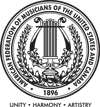
The Second Disc
Expanded and Remastered Music News
Terms and Conditions - Privacy Policy
Music to Match the Movie: Jerry Goldsmith’s Mastery
Friends Read Free

The film opens with the backdrop of an enormous American flag. Slowly, a general of the Army walks into view. An offscreen voice calls “Ten-hut” as the general snaps to salute. We see close-ups of the general’s ribbons, medals, and pistols while we hear “To the Colors,” a military bugle call honoring the flag.
Of course, this is “Patton,” the 1970 Oscar-winning movie about General George S. Patton, portrayed on screen by George C. Scott. After this opening you will hear Patton’s actual speech to the troops, given verbatim by Scott. Only then does a background musical score emerge under the credits.
What It’s All About
The meaning of “Patton” is in those opening minutes, where viewers see a man, a flag, and a musical call to honor the flag. The story of “Patton” is the devotion of one man to his country and the form it takes. This is evident from the very start, when the American flag dwarfs the highly decorated man and all we hear is a bugle sounding the notes of a major chord. Those notes (“To the Colors”) are the opening music. It is “diegetic” music—music heard by the characters in a scene, as opposed to “background” music heard only by the movie’s audience—but it nonetheless sets a frame for the ensuing background score.

What Goldsmith does with it is pure gold, indeed.
Immediately after Patton’s speech, we hear a trumpet playing three notes of the bugle call repeatedly, fading out each time. Goldsmith used a device called an echoplex to get that effect. Over the fading echoes an organ intones a thickly harmonized hymn-like melody. The two ideas intertwine, and at length comes a march tune—not a heavy-footed march of cliched war-movie music, but a light, fast, Sousa-like march that eventually bursts into a second strain of more aggressive, yet still joyous measure. Near the end of the title music, the hymn and the march combine, with the echoing trumpets still reminding us of the opening bugle call. The themes of the title music will develop throughout the movie.

Hear it, Don’t Notice It
Goldsmith (1929–2004) started out as a composer for TV in the early glory days of the little screen, the 1950s. Music for various series including “Dr. Kildare” and “Gunsmoke” earned him the attention of movie directors. He made a sudden big-screen debut in 1962 with music for a raft of films, the best-known being “Freud,” a bioflick of Sigmund Freud directed by John Huston. It garnered him the first of 18 Academy Award nominations, though he would win for only one, for “The Omen” (1976).
Goldsmith’s reputation grew with films as diverse as “Seven Days in May” (1964), “A Patch of Blue” (1965) and “The Sand Pebbles” (1966), but nothing in those scores prepared studios or listeners for his radically right music to 1968’s “Planet of the Apes.”
“Planet of the Apes” finds a group of humans stranded in a world populated by intelligent apes, a life form foreign to them yet strangely familiar. To underline the alien nature of the ape population, Goldsmith wrote music that frustrates a listener’s usual expectations. The music goes one way but ends at a different place. The musical technique Goldsmith employed to achieve this effect is a form of 12-tone music, a generally dissonant composition method.
Goldsmith also used an echoplex (the device he would use in “Patton”) to loop passages in mesmerizing repetition, and he often set two contrary rhythms off against each other. In short, Goldsmith’s score put the audience in a musical place analogous to the strangely terrifying situation of the characters.

Goldsmith’s mastery of creating music to fit a film’s theme climaxed in 1974, when producer Robert Evans came to him with a plea. A major Paramount release was bombing in audience previews and Evans thought he knew why: The music was a pastiche of 1930s big-band music. The composer apparently thought that because the story took place in the 1930s, such an approach was warranted.
Epic, Heroic, and Out of this World
Mahler’s ‘resurrection’ symphony: answering nihilism.
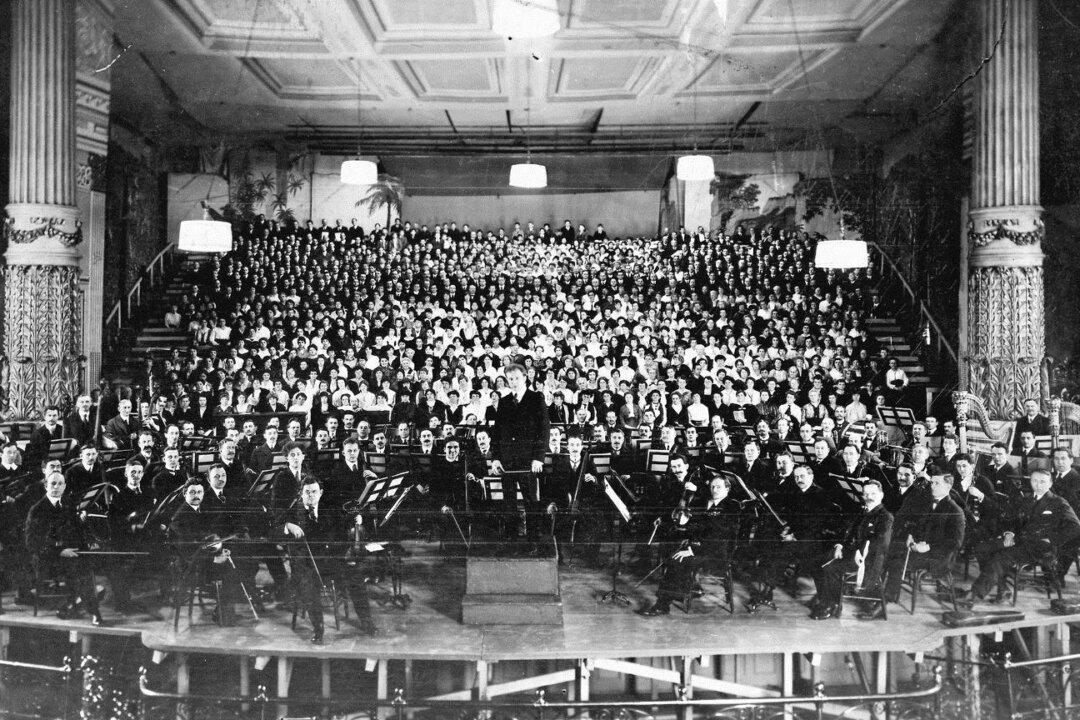
Country Singer RaeLynn Is Not Afraid to Let You Know She Loves Her Country, Family, and Faith Fiercely

From Concert to Screen Gem: The Last Romantic Composer
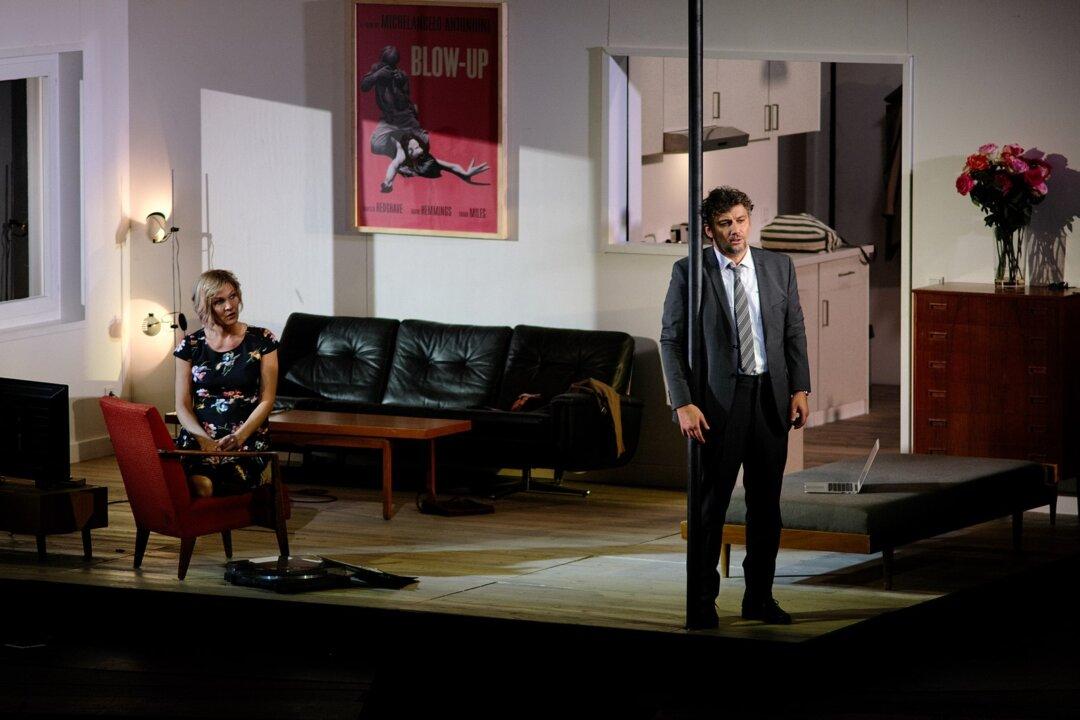

Did Captain Kirk Really Meet God In Star Trek V: The Final Frontier?
- William Shatner directed The Final Frontier due to contract clause and Jerry Goldsmith returned to score.
- Spock kills "God," which was a controversial plot point and seen as a low point for Star Trek movies.
- Kirk, Spock, and McCoy didn't actually meet "God" on Sha Ka Ree, per Roddenberry's vision.
There are three notable things about Star Trek V: The Final Frontier , the fifth movie starring the cast from Star Trek: The Original Series . The first is that James T. Kirk actor, William Shatner, directed the feature as part of his "favored nations" clause in his contract. The second is that legendary composer Jerry Goldsmith returned to score the film for the first time since Star Trek: The Motion Picture . The third is that Spock kills "God." Yet, in The Final Frontier , does Kirk and company actually meet the real God on the planet Sha Ka Ree?
Of course, there is a lot that is polarizing about Star Trek V , as it's seen as a low point in the storied film franchise. Yet, even with the appreciation of Marvel Studios' CEO Kevin Feige, it's called Star Trek 's worst movie . There are many reasons for this, however, as Shatner's direction is not entirely to blame. There was also a more controversial message in the film than the previous entry's "don't murder whales." Still, the film has its charms, which stand out much more clearly when audiences realize that Kirk, Spock and Doctor McCoy didn't actually meet "God" on Sha Ka Ree.
The Star Trek Crew Always Had a Date With God
Star trek's worst movie was its best story about kirk, mccoy and spock.
Visionary Star Trek creator Gene Roddenberry always wanted his crew to meet God . There are signs of this throughout the previous iterations of Star Trek , from The Original Series to the pilot of Star Trek: The Next Generation . Roddenberry had a vision of a united world that put war, poverty and religious extremism behind them and looked to the stars . He was an atheist, and an allegory he wanted to put in Star Trek was that the concept of gods came from simple human misunderstanding of scientific concepts. Sure, some of those concepts were things like "Where does the sun go at night." Yet, as his friend Arthur C. Clarke posited: "Any significantly advanced technology is indistinguishable from magic."
In the Star Trek: The Original Series episode "Who Mourns for Adonais," the USS Enterprise is stopped by a powerful alien claiming to be the god Apollo. In the episode, he tells the crew the other aliens who inspired the Greek Gods moved on to a higher plane. Yet, he waited for humans to find him and start worshipping him again. In Star Trek: The Animated Series , two episodes dealt with this. In "The Magicks of Megas-Tu," a proposed story about meeting God became a story about the Enterprise meeting the alien who was the source of the Devil myths, and Kirk defended him. The Emmy-winning Star Trek: TAS episode , "Sharper Than a Serpent's Tooth" introduced K'ul'ulkan as an alien being also encountered by the Enterprise.
This continued into the feature film era. The story Roddenberry most wanted to tell on the big screen was put into script form with the working title The God Thing . Another lost Star Trek movie called Planet of the Titans had nothing to do with Roddenberry, but would've sent Kirk and the crew back in time where they became the basis for the Greek Gods on Mount Olympus. There are many attempts to use the Star Trek characters to make the argument that humanity's myths about gods could've simply been born from extraterrestrial contact from before society had the vocabulary for such things .
William Shatner Never Intended for Kirk to Meet the 'Real' God In Star Trek V
William shatner is wrong about his regret for kirk's death scene.
Ironically, Gene Roddenberry hated The Final Frontier when it was set to be released. In the book The Fifty-Year Mission - The First 25 Years by Edward Gross and Mark A Altman, many speculate he didn't like the idea of the story being told without him writing the script. The other problem he had with the film was Sybok. Not because he was Spock's secret brother, but rather because Sybok's "Share your pain" gimmick won over the members of the crew like Sulu, Uhura, Chekov and even Doctor McCoy. Yet, it's that very detail that proves the God of Sha Ka Ree was not the actual God . He likely never even made it to Earth.
The story itself was inspired by the 1980s televangelists who used hokey gimmicks and tricks to con people out of their money. Sybok, however, wasn't that cynical. He believed he had been in communication with God. His ability to win over people to his side by asking them to share their pain, was likely because of his Vulcan telepathic abilities combined with his full embrace of emotion. Perhaps because this being was powerful and in pain, it reached Sybok and enticed him to capture a starship to push past the barrier around the planet, so it could be freed. If this being was the source of any of Earth's mythology, it was likely the Old Testament-style God, full of wrath, destruction and a need to be praised.
Audiences can think whatever they'd like about The Final Frontier , but Kirk asking "Excuse me? What does God need with a starship?" is one of the most memorable Star Trek lines of all time. The being on Sha Ka Ree was clearly imprisoned there for some kind of galactic crime. Perhaps an advanced civilization trapped him there to protect developing worlds, or perhaps this being was incarcerated by his equally powerful kin. Similar to Apollo (who chose to stay) and the beings from "Who Mourns for Adonais?", it seems like the God of Sha Ka Ree was being punished. Either way, it was seemingly destroyed by a few choice shots from a Klingon Bird of Prey, making him a sorry example of even alien divinity .
What Species Was The Final Frontier's God, Anyway?
One of the most underrated star trek films is far better than fans remember.
There is no shortage of god-like aliens in the Star Trek universe. In fact, the last time Roddenberry tried to tell his version of the God story came in The Next Generation's pilot. It's very possible that the God of Sha Ka Ree was a "Q." Introduced in "Encounter at Farpoint," Q was a member of the Q Continuum, whose members all went by that single-letter name. It's also believed that Trelane, the reality-bending being from The Original Series episode "The Squire of Gothos." Like Q in the second-wave series, he was jovial, a little silly and prone to fits of anger.
Of course, the God of Sha Ka Ree doesn't have to be a member of the Q Continuum, as there are other options. Star Trek: Deep Space Nine introduced the Bajoran Prophets as fourth-dimensional beings who had the power to send visions and see all of time and space. Yet, they didn't seem to express the ability to interact with "linear" types as well. There are other powerful alien species in Star Trek who could. In The Original Series alone, beyond Apollo and Trelane, there were the Metrons and Organians, who were both noncorporeal lifeforms that could alter reality.
The reverse has also happened, most notably in The Next Generation 's episode "Who Watches the Watchers." Captain Picard is viewed as a god when a surreptitious survey mission on a pre-warp planet is discovered by the locals. While there is no definitive answer to what species the God of Sha Ka Ree actually was, there is plenty of evidence in the universe to make it clear he wasn't the actual Divine Creator of the universe . Yet, it's Star Trek: Discovery that's getting the closest to actually "finding God."
Star Trek: Discovery Season 5 Is Bringing Humanity's Creator Closer Than Ever
Star trek's william shatner pokes fun at star wars on may the fourth.
In TNG's Season 6 episode "The Chase," the writers introduced a massive canon reveal that was meant to address a nitpicky fan complaint. Since Star Trek is all about "infinite diversity in infinite combinations," fans wondered why so many aliens had a head, two arms and two legs. The real answer, of course, is that humans had to play them. Yet, TNG revealed a species of aliens from 4.5 billion years ago seeded planets across the Milky Way to create humanoid life after traveling the galaxy and finding they were alone . This revelation was buried by Starfleet, but Star Trek: Discovery Season 5 picked up the story.
Throughout the season, the USS Discovery is assembling clues left by a group of 24th Century scientists who found more evidence of the Progenitors and their technology. Because Starfleet was at war with the Dominion, they hid this discovery until a time when the galaxy was at peace. If the USS Discovery finds this technology, that will be the closest Star Trek has gotten to actually unveiling the true creator of humanity . As Roddenberry always intended, it wasn't some omniscient, supernatural being, but rather an advanced race of "people" who had technology indistinguishable from magic.
Star Trek: Discovery debuts new episodes Thursdays on Paramount+, where the rest of the series in the universe are streaming. Star Trek V: The Final Frontier is streaming with the rest of the films on Max .
Star Trek V: The Final Frontier
Captain Kirk and his crew must deal with Mr. Spock's long-lost half-brother who hijacks the Enterprise for an obsessive search for God at the center of the galaxy.
Director William Shatner
Release Date June 9, 1989
Cast Todd Bryant, Nichelle Nichols, Walter Koenig, William Shatner, George Takei, Leonard Nimoy, Deforest Kelley, James Doohan, David Warner
Writers Harve Bennett, Gene Roddenberry, William Shatner
Runtime 107 minutes
Main Genre Science Fiction
Genres Action, Science Fiction, Adventure, Fantasy
Production Company Paramount Pictures, Polyphony Digital

- Daily Deals
- Help & Contact
- Watch List Expand watch list Loading... Sign in to see your user information
- Recently Viewed
- Bids/Offers
- Purchase History
- Saved Searches
- Saved Sellers
- Collect & Spend Learn more
- Notification
- Expand Basket Loading... Something went wrong. View basket for details.
Picture 1 of 8
Jerry goldsmith – star trek nemesis motion picture soundtrack. eu 2002 vsd-6412.
- Private Registered as private seller, so consumer rights stemming from EU consumer protection law do not apply. eBay Money Back Guarantee still applies to most purchases. Registered as a private seller Consumer protection regulations resulting from EU consumer law are therefore not applicable. eBay buyer protection still applies to most purchases.
- 99.7% positive
- Seller's other items Seller's other items
- Contact seller
- Watch this item
Oops! Looks like we're having trouble connecting to our server.
Refresh your browser window to try again.
Shop with confidence
Item specifics, item description from the seller, returns policy, payment details, mantan music and books, detailed seller ratings, average for the last 12 months, popular categories from this shop, seller feedback (1,565), product ratings and reviews, most relevant reviews, star trek nemesis cd.
Verified purchase: Yes Condition: Pre-owned
Verified purchase: Yes Condition: Pre-owned Sold by: worldofbooks08
More to explore:
- Soundtracks & Musicals CDs Jerry Goldsmith ,
- Soundtracks & Musicals CDs Jerry Goldsmith in English ,
- Jerry Goldsmith Film Score/Soundtrack CDs ,
- Jerry Goldsmith Intrada Soundtracks & Musicals CDs ,
- Jerry Goldsmith Soundtracks & Musicals CDs Varèse Sarabande ,
- Jerry Goldsmith Limited Edition Soundtracks & Musicals CDs ,
- Jerry Goldsmith Deluxe Edition Soundtracks & Musicals CDs ,
- Music CDs Jerry Goldsmith ,
- Album CDs Jerry Goldsmith ,
- Soundtracks & Musicals Limited Edition Picture Disc Vinyl Records

IMAGES
VIDEO
COMMENTS
Jerry Goldsmith's score to Star Trek: The Motion Picture became the signature piece of Star Trek film music, with a main theme repurposed for Star Trek: The Next Generation (at Gene Roddenberry ...
Soundtrack from the 1979 Robert Wise film "Star Trek: The Motion Picture" with William Shatner, Leonard Nimoy, Deforest Kelly, James Doohan, Walter Koenig, N...
The Jerry Goldsmith Companion features more about Goldsmith's work on Star Trek: The Motion Picture as well as Star Trek V: The Final Frontier, Star Trek: First Contact, Star Trek: Insurrection ...
Whether it was for film or television, where Star Trek was concerned, Goldsmith was omnipresent. Sadly, Jerry Goldsmith passed in 2004. However, his music for Star Trek and particularly The Motion Picture continues to live on, through the wonderful La-La Land soundtrack release, as a concert staple, and in the hearts of Star Trek fans across ...
The music to the 1979 American science fiction film Star Trek: The Motion Picture featured musical score composed by Jerry Goldsmith,: 87 beginning his long association with the Star Trek film and television. Influenced by the romantic, sweeping music of Star Wars by John Williams, Goldsmith created a similar score, with extreme cutting-edge technologies being used for recording and creating ...
Omni Music Publishing was launched in 2011 by veteran of the film music recording industry, Tim Rodier, with a focus on publishing full orchestral scores of modern film music. Now available from them is the full orchestral score of Jerry Goldsmith's music for Star Trek: The Motion Picture. Released in 1979, the film was the first of six to ...
Provided to YouTube by Universal Music GroupGoldsmith: Star Trek: The Motion Picture · Jerry Goldsmith · London Symphony OrchestraThe Film Music Of Jerry Gol...
Highlights from the 1979 film score Star Trek: The Motion Picture by Jerry Goldsmith. Enjoy this super soundtrack suite!Please note all rights to the music ...
There's a new release sure to perk up the ears of any musically-inclined Star Trek fan, celebrating the legendary soundtrack of the first franchise film: the complete printed score to Jerry Goldsmith's Star Trek: The Motion Picture music! Announced this week by Omni Music Publication, a massive 473-page publication collects every single measure of Goldsmith's Motion Picture score, from ...
A timeless classic, full of majesty and the essential Goldsmith soundtrack to own. The music to Star Trek The Motion Picture is one of Jerry Goldsmith's greatest gifts and supreme testimony to his greatness as one of the most important voices in cinematic music. Jerry Goldsmith Online - In Memory Of Jerry Goldsmith 1929 - 2004 News, Soundtrack ...
Listen to Star Trek: The Motion Picture - The Director's Edition (Music from the Motion Picture) on Spotify. Jerry Goldsmith · Album · 2022 · 25 songs. Jerry Goldsmith · Album · 2022 · 25 songs. Home; Search; Your Library. Playlists Podcasts & Shows Artists Albums. Legal.
3:46. Star Trek: The Motion Picture - Total Logic. 3:47. 05 Floating Office. 1:05. Explore the tracklist, credits, statistics, and more for Star Trek: The Motion Picture by Jerry Goldsmith. Compare versions and buy on Discogs.
Music by Jerry Goldsmith. LIMITED EDITION OF 10000 UNITS. Jerry Goldsmith's iconic original score to Paramount Pictures' 1979 feature film STAR TREK: THE MOTION PICTURE boldly returns with a limited edition 2-CD re-issue from La-La Land Records and Paramount Music.
Listen to Star Trek: The Motion Picture - The Director's Edition (Music from the Motion Picture) by Jerry Goldsmith on Apple Music. 2022. 25 Songs. Duration: 1 hour, 26 minutes.
Jerry Goldsmith "Star Trek: The Motion Picture" Full Orchestral Score. Rated 5.00 out of 5 based on 5 customer ratings. ( 5 customer reviews) $ 85.00. 473 pages. 9×12 inches. Paperbound, Printed in U.S.A. Available worldwide. Note: Please check with your country for import/duty tax before ordering.
Live long and prosper!Big thanks to mr. Anders Gaden for acces to the amazing Allen organ at Helligåndskirken, Aarhus, Denmark. Full orchestral score availab...
Star Trek: The Motion Picture [Music from the Original Soundtrack] by Jerry Goldsmith released in 1979. Find album reviews, track lists, credits, a... New Releases. Discover. Genres Moods Themes. Blues Classical Country. Electronic Folk International. Pop/Rock Rap R&B. Jazz Latin All Genres ...
Jerry Goldsmith - Star Trek: The Motion Picture (Original Soundtrack) ... Jerry Goldsmith's iconic original score to Paramount Pictures' 1979 feature film STAR TREK: THE MOTION PICTURE boldly returns with a limited edition 2-CD re-issue from La-La Land Records and Paramount Music. The first big screen voyage of Captain Kirk and Mr. Spock was a ...
Total Album Time: 86:37. Album Credits. Musicians. Score and Original Soundtrack Album Produced by Jerry Goldsmith. Score and Original Soundtrack Album Executive Producer Bruce Botnick. Music Composed and Conducted by Jerry Goldsmith. Orchestrations: Arthur Morton. Orchestra Contractor: Carl Fortina. Music Performed by The Hollywood Studio ...
Set turntables at 33 1/3 RPM speed! Jerry Goldsmith's score to Star Trek: The Motion Picture - restored last year for a new restoration of the film's "Director's Edition" - is coming out of warp and onto vinyl from Enjoy The Ride Records.. The reissue label, specializing in unique pressings of soundtracks on LP, will issue three separate versions of the complete film score on 140-gram double ...
Some commentators call Goldsmith's score for "Star Trek: The Movie" (1979) his masterpiece, for the epic breadth that equaled John Williams' then-recent score to the original "Star Wars ...
This is a featurette where Jerry Goldsmith talks about his score to 'Star Trek, The Motion Picture'. This also has spanish subtitles.
The second is that legendary composer Jerry Goldsmith returned to score the film for the first time since Star Trek: The Motion Picture. The third is that Spock kills "God." The third is that ...
Explore songs, recommendations, and other album details for His Last Recordings - Star Trek Nemesis / Timeline / Looney Tunes: Back In Action by Jerry Goldsmith. Compare different versions and buy them all on Discogs.
The Enterprise by Jerry Goldsmith from Star Trek: The Motion Picture, performed live at Fimucité 2 Closing Gala in Tenerife, June 29th, 2008.Video from the n...
Jerry Goldsmith. Star Trek NEMESIS (Music from the original Motion Picture Soundtrack) EU 26th November 2002. Varèse Sarabande VSD-6412. Disc & Case - FULLY SERVICEABLE. Insert - VERY GOOD. *POSTAGE: UK-£3.20 EU-£5.25 US-£7.00 Canada&SouthAmerica-£6.85 REST-OF-WORLD-£8.05. Royal Mail International Standard.
Jerry Goldsmith's magnificent score to Star Trek: The Motion Picture has been released on CD and LP by La-La Land Records, and the full orchestrations publis...